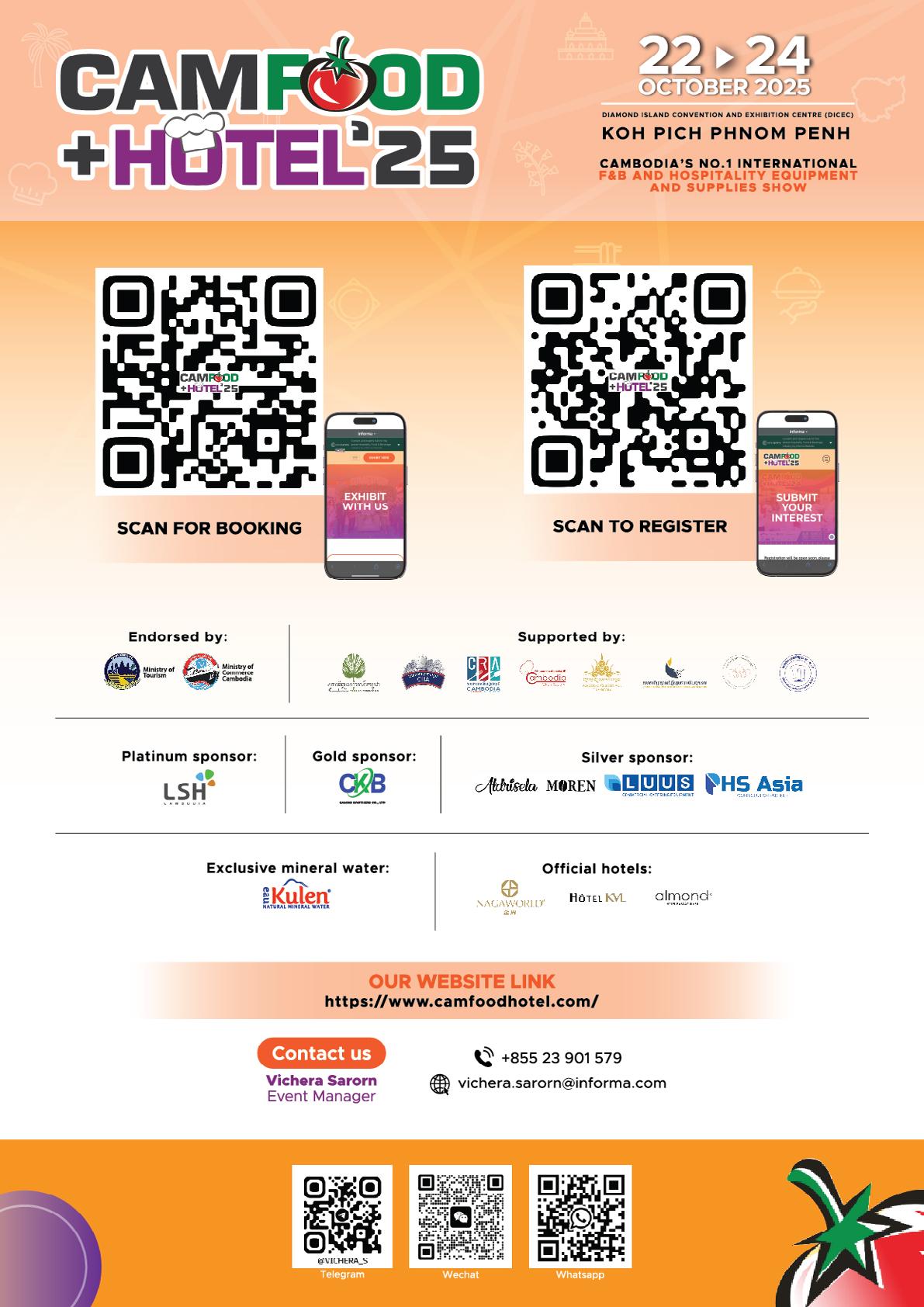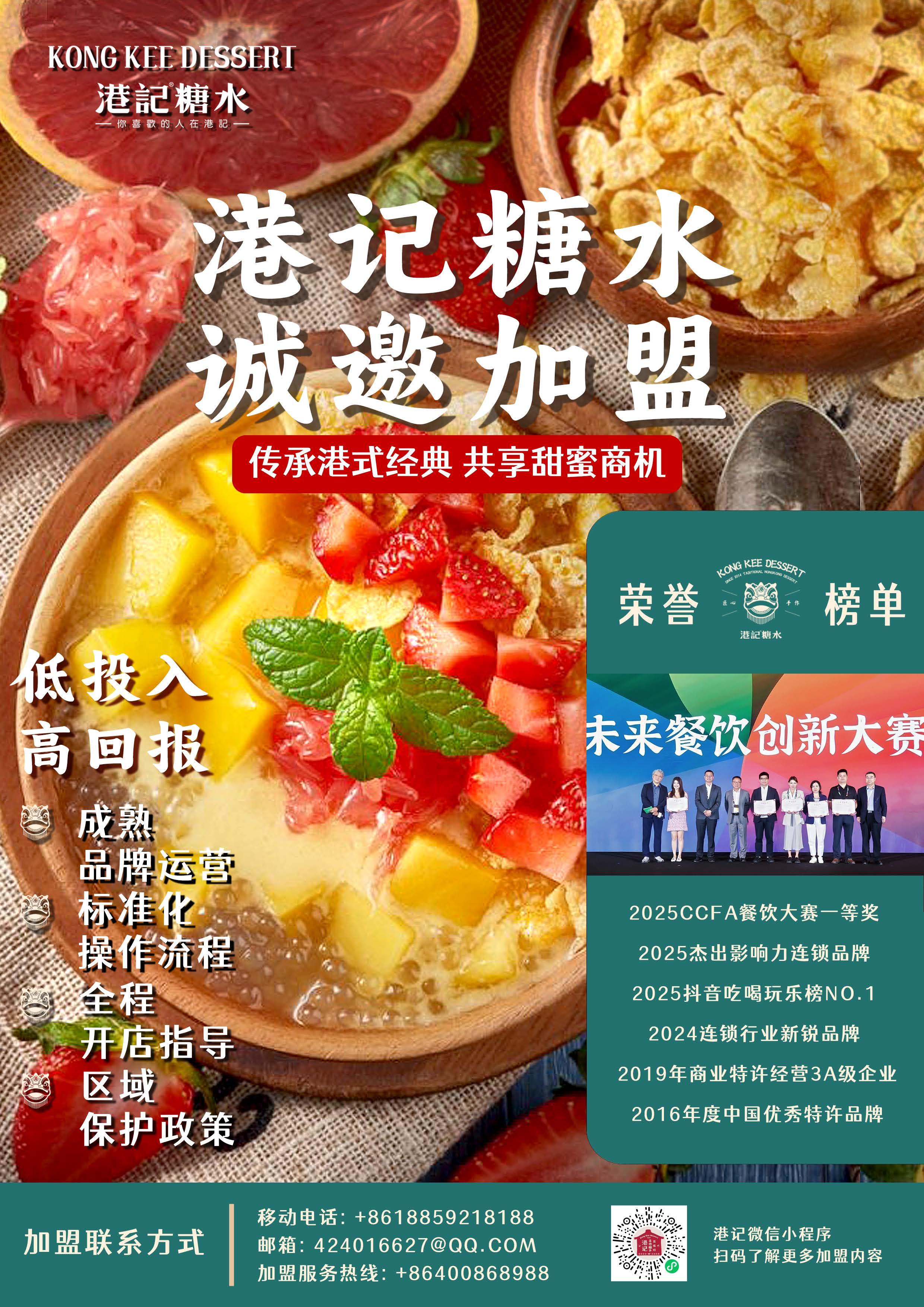
Creating a Thriving Educational Ecosystem Across Asia Pacific:


Creating a Thriving Educational Ecosystem Across Asia Pacific:
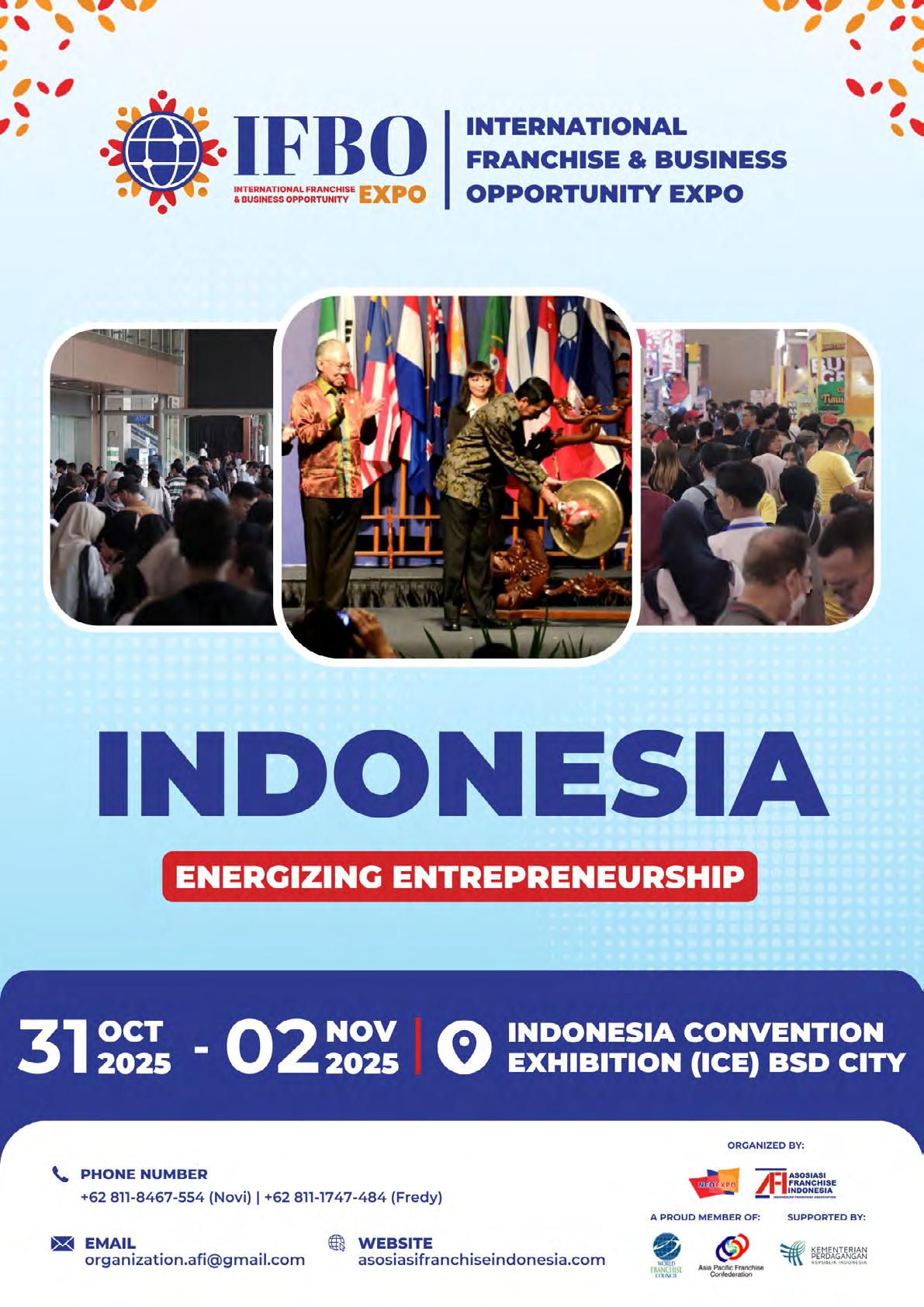


18-20 SEPTEMBER
MARINA BAY SANDS SINGAPORE



Expand Your Brand in the Vibrant Asian Market!

3,500 attendees from 53 countries/regions
Facilitated business meetings with franchisees, multi-unit operators, investors, entrepreneurs, and business owners
Showcase alongside 200+ top and emerging brands
Join the Franchising and Licensing Conference featuring over 40 inspiring speakers, curated to draw the right buyers to you






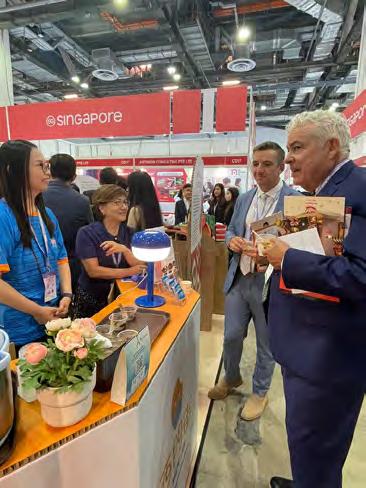









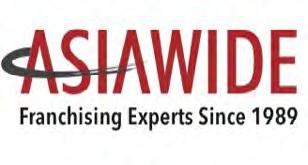


2025新加坡亚洲特许连锁高峰论坛 主题:共创。共赢。 特许连锁增长新动力(中文) 2025 年 9 月 19 日,滨海湾金沙展览中心
Winning Via Collaboration in Franchising (Chinese language) 19 September 2025 at Marina Bay Sands Exhibition Centre
早上议程:行业洞察与战略规划 Early Morning Session: Industry insights and Strategic Planning
08:30 – 09:00 注册签到 & 交流茶点 Participants registration
09:00 – 09:10 主礼致辞 VIP Opening Session/Speech
09:15 – 09:30 主题演讲:特许经营趋势与东南亚市场机遇
Keynote Speech: Franchising Trends and Market Opportunities in Southeast Asia
09:30 – 10:20 小组讨论:特许品牌如何实现可持续扩张
Panel discussion: How can franchise brands achieve sustainable expansion?
10:20 – 10:40 茶饮 & 交流 Tea Break / Networking
10:45 – 12:00


Mid-Morning Session : Practical Training Workshop
1. 特许经营研习课: 渠道深耕,饱和开店的顶层设计与运营攻略。 Channel cultivation, top-level design and operation strategy for optimum stores opening.
2. 特许品牌融资渠道解析。
Analysis of franchise financing channels.
3. 关税变化下的特许经营全球发展财税规划路径。 Fiscal and tax planning paths for global development – under tariff changes.
4. 生成式AI和IOT 技术在特许体系的应用。
Application of generative AI and IOT technology.
5. AI 赋能餐饮连锁门店管理提交之路。 How AI empowers chain store management.
6. 餐饮与零售特许连锁扩张依赖供应链本地化。 Localization of supply chain.
中午议程:资源对接与案例实操 Noon Session: Match-making
12:00 – 13:30 特许品牌“快速约会”对接会。品牌方(10-15家)轮换展示,每轮5分钟
Each brand (10 to 15 brands) will take turns to present, 5 minutes per round.
13:30 – 13:35 颁纪念品* Presentation of tokens to speakers & supporters
*演讲嘉宾;合作方(Andy Hoon 老板联谊会 ; 新加坡中国商会;等)
Participation costs: 3 Tiers 参与费用:3个等级
1) S$150 for all three sessions 三个议程共 150 新元
2) S$100 for two sessions 两个议程共 100 新元
3) $80 for one session 一个议程共 80 新元


For more information, please contact: jonathan@asiawidefranchise.com.sg Tel

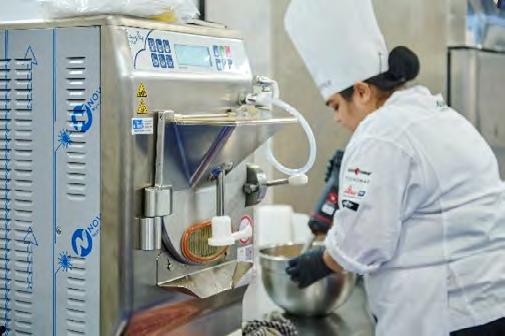
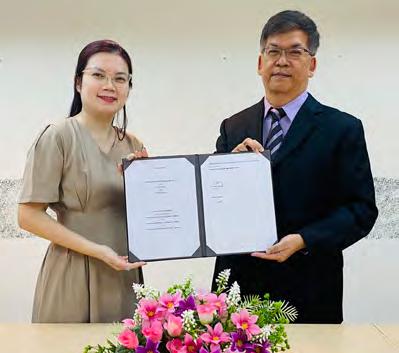
封面故事
The impact of cross-border trademarks on overseas enterprises 22 跨境商标对出海企业的影响及注意事项
如何利用数据做出更好的决策?提出正确的问题


势不可挡的创业者
ranchise companies, once they have built a solid net work of outlets in their own countr y, will often st art to look at overseas markets. Because many entr y barriers can be overcome via franchising , this is naturally a preferred model for overseas expansion.
However, in my 33 years in franchise consulting , I have seen many franchisors rush overseas in the most unprepared conditions – e.g ., when their nancial position is still relatively weak; when their team members are still inexperienced and psychologically unprepared to travel frequently overseas; and when their intellectual propert y protection is not in place…
Interestingly, I recently read an article about international expansion by Wharton management professor Exequiel (Zeke) Hernandez who studied a phenomenon in the banking industr y in his paper, “When Do Ethnic Communities A ect Foreign Location Choice? Dual Entr y Strategies of Korean Banks in China” Professor Hernandez mentioned the example of a Korean bank which, among other strategies it deploys, open branches in China populated by people of its own ethnic group.
I opine that before venturing overseas, doing tons of pre-entr y homework, and evaluating the external environment of a business by breaking down the opportunities and risks into Political, Economic, Social, Technological, Environment al, and Legal factors (PESTEL) is tot ally essential.
May 2022 be a year when great breakthroughs happen for the good of all humanit y

Albe Editor
Despite the turbulence of trade tariffs, geopolitical shifts, and the ongoing wars in some parts of the world, the resilience of the franchising industry remains undeniable. History has shown that franchising thrives in adversity—its adaptability, scalability, and proven business models enable entrepreneurs to navigate uncertain times with confidence.
The topic might seem unusual, but the phenomenon of rms expanding into foreign markets [to follow immigrants] is actually quite common. I am inclined to see Philippines’ fast-food Jollibee as a real example. Their rst outlets were in California because there are many Filipinos who live there…
While global markets face disruption, franchising continues to offer stability by fostering innovation and creating opportunities in diverse sectors. Consumer demand, especially amongst Gen Z, remains strong, and businesses that embrace flexibility and strategic expansion will emerge even stronger. Strategies include the localization of sourcing, diversifying product offerings to meet changing consumer demands and adapting to regional regulations.
尽管贸易关税、地缘政治变化以及世界部分地区持 续战乱,特许经营行业的韧性依然不容置疑。历史证 明,特许经营在逆境中蓬勃发展——其适应性、可扩 展性和成熟的商业模式使企业家能够自信地应对充满 不确定性的时期。
尽管全球市场面临动荡,但特许经营通过促进创新 和在各个领域创造机遇,持续提供稳定性。消费者需 求,尤其是Z世代消费者的需求依然强劲,而那些拥 抱灵活性和战略扩张的企业将会更加强大。这些战略 包括采购本地化、产品多元化以满足不断变化的消费 者需求以及适应区域法规。
Challenges may test us, but they also inspire ingenuity, compelling brands to refine their operations, strengthen partnerships, and find new pathways for growth.
But not all companies will nd it desirable to locate where immigrants from their home countr y live. There are cases in which companies deliberately avoided locating where immigrants live because they didn’t want to be associated with catering to a ‘niche-y’ ethnic group of customers or workers. Instead, they actually wanted to ser ve the broader market. Professor Hernandez’s ‘dual entr y strategy’ is quite interesting “If I am a rm and I’m considering expansion into a location that has an ethnic population, I’m going to do it if that location has a weak institutional environment weak courts, weak laws, weak propert y rights — but I will not or I will be at least much less swayed by the ethnic population in places where institutional environments are strong”
As we look ahead, one thing is certain: franchising is not just enduring the storm—it is evolving, expanding, and paving the way for a dynamic future.
Publisher 出版
Asiawide Franchise Consultants Pte Ltd
爱思威特许经营顾问有限公司
Tel 电话: (65) 9679 3947
Email电邮: info@asiawidefranchise.com.sg
Website网站:www.asiawidefranchise.com.sg
Facebook: @AsiawideFranchiseConsultants
X: @Asia_Franchise
Linkedin: @Aisa-franchise
Wechat: XinjiapoJiangJinXing
Designer 设计 Compassage Design Pte Ltd
Media Reps 广告代理 albert@asiawidefranchise.com.sg
MDDI (P) 072/04/2025
Editor-In-Chief 总编辑 Albert Kong 江进兴
We welcome views and comments from our readers. Correspondence should be addressed to Editor-inChief at the above address.
Asia Franchise & Business Opportunities (AFBO) reserves the right to edit letters for publicaiton and also reserves the right to refuse advertising. With the publicaiton of AFBO, Asiawide Franchise Consultants Pte Ltd is not offering legal, financial or any professional advice or endorsements. Readers are encouraged to seek advice from professionals in specialized fields before acting on any information published herein. The views and opinions expressed in AFBO are those of the author(s) and do not necessarily reflect the views and opinions of Asiawide Franchise Consultants Pte Ltd
挑战或许会考验我们,但它们也能激发创造力,促使 品牌改进运营、加强合作伙伴关系并寻找新的增长途 径。
展望未来,有一件事是肯定的:特许经营不仅在经受 住风暴的考验,它还在不断发展、扩张,并为充满活 力的未来铺平道路。




FHA Food & Beverage 2025 concluded with resounding success following four bustling days of innovative business interactions and collaborations. Uniting industry leaders, professionals, and culinary innovators under one roof, FHA F&B 2025 has played host to more than 1,600 exhibitors from over 50 countries, showcasing their innovative products and solutions at the region’s leading food & beverage trade event.
With 12 dynamic segments offering attendees an unparalleled experience, the event covered everything from cutting-edge technology to innovative products and practices, designed to address the ever-evolving needs of the food & beverage industry.


期四天的展会汇聚了众多创新的商业互动与合 作。FHA2025 将行业领袖、专业人士和烹饪创新 者汇聚一堂,汇聚了来自 50 多个国家的 1600 2025年新加坡亚洲食品与酒店展FHA圆满落幕

Media Enquiries 媒体垂询:Informa Markets (Belinda Goh) Email 邮箱:Belinda.Goh@informa.com
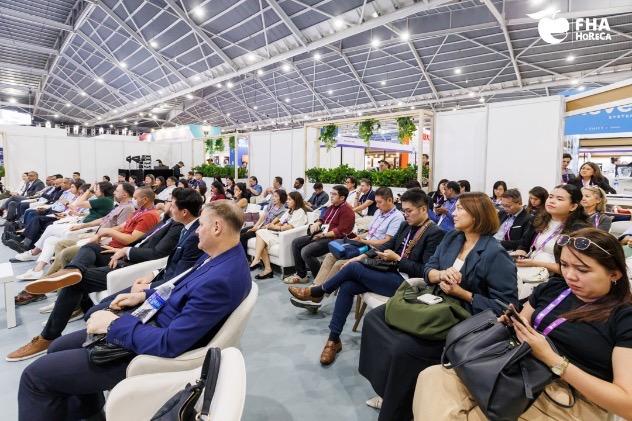
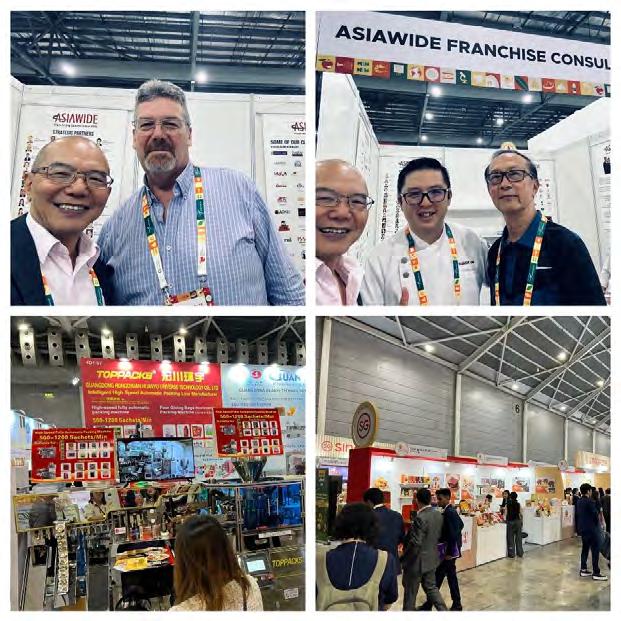

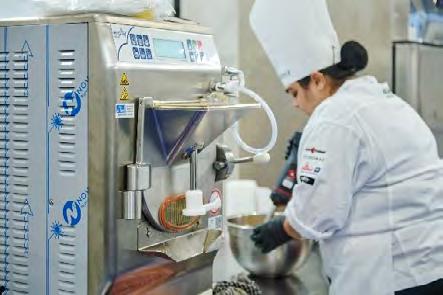


As a pioneering force in early childhood education, Kinderland has embarked on an ambitious journey of growth and innovation across the Asia Pacific region. Established in 1978, Kinderland is the longest-established early childhood brand under Crestar Education Group (CEG). CEG is a leading provider of infant and child care services, preschool education, enrichment, and adult education programmes in the region. Kinderland is committed to delivering world-class learning experiences that lay a strong foundation for children’s futures. We are proud to share our milestones and
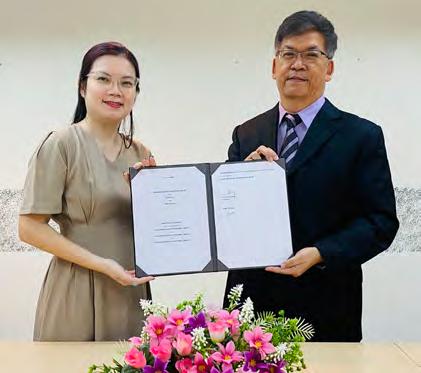
vision as we expand into China, Malaysia, Indonesia, Vietnam, Cambodia, Bangladesh, Australia, and Singapore.
Founded on the belief that every child deserves a nurturing environment for holistic development, Kinderland has become synonymous with quality and innovation in education. Our unique curriculum—infused with music and grounded in key learning domains such as bilingual literacy, physical fitness, coding, character building, and S.T.R.E.A.M. (Science, Technology, Reading & wRiting, Engineering, Arts, Mathematics)—has been a cornerstone of our success.
Over the decades, we have nurtured countless young minds, unlocking their potential and inspiring a passion for lifelong learning.
Our expansion strategy is guided by a deep understanding of and respect for the educational and cultural landscapes of each market.

In Singapore, we have set industry benchmarks through our integration of music and creative expression into daily learning, earning recognition for cultivating confident, well-rounded learners.
In Malaysia and Indonesia, Kinderland’s early education centres have become community hubs that support parents and children, providing invaluable resources for child development. The success of our bilingual programmes has nurtured a new generation of global citizens.
Our recent ventures in Vietnam and Cambodia underscore our commitment to making quality education more accessible. By collaborating closely with local educators, we have localised our curriculum to provide relevant and culturally attuned learning experiences.
In Australia, our partnership with a local provider in Melbourne enables us to serve the community while gaining valuable insights into operating a successful preschool business in a new and dynamic environment.
Joining the Kinderland network means becoming part of a passionate and professional community dedicated to shaping young lives.
Our franchise model empowers partners with comprehensive support—from curriculum development and teacher training to operational guidance and marketing—ensuring consistency and excellence across all 56 centres in the region.
We invite driven educators and entrepreneurial minds who share our vision to join us in shaping the future of early childhood education. As a Kinderland partner, you

benefit from an established brand, extensive training, and a robust support system designed to help you thrive.
As we continue to grow, Kinderland remains committed to innovation and excellence in early childhood education. Our journey is far from over; with each new location, we aim to enrich communities and shape a brighter future for the children of Asia. Together, let’s build a network that stands as a beacon of quality education, inspiring the next generation of learners and leaders.
By joining Kinderland’s mission, you become part of a transformative movement. For those ready to embark on a meaningful and rewarding venture in early childhood education, Kinderland offers a compelling platform to create lasting impact.
We welcome you to explore the possibilities—and join us in our mission to educate, inspire, and illuminate the paths of young minds across Asia Pacific.



馨乐园的教育生态蓝图与卓越征程
作为幼儿教育领域的开拓者,馨乐园正以创新之姿 驰骋亚太教育版图。自1978年创立以来,作为科 思达教育集团旗下历史最悠久的早教品牌,我们 始终秉持教育初心。科思达教育集团作为区域领先的教育服务 提供者,致力于为亚太地区提供婴幼儿托管、学前教育、儿童 才艺课程及成人教育等全方位教育服务。
我们以打造国际化的学习体验为己任,为孩子们的终身发展奠 定坚实基础。如今,我们怀着教育者的热忱,将优质教育版图 拓展至中国、马来西亚、印度尼西亚、越南、柬埔寨、孟加拉 国、澳大利亚及新加坡等市场,并与您分享我们的拓展成果与 愿景。
卓越传承,匠心育人
秉持”每个孩子都应获得全面发展的成长环境”这一教育信 念,馨乐园已成为优质教育与创新理念的代名词。我们独特的 课程体系以音乐为特色,融合双语读写、体能发展、编程思 维、品格塑造及S.T.R.E.A.M.(科学、技术、阅读与写作、工 程、艺术、数学)等核心领域,成为我们成功的基石。
数十年来,我们以专业与爱心启迪了无数稚嫩心灵,不仅激发 他们的无限潜能,更在他们心中播撒下终身学习的种子。这份 教育薪火,我们始终用心传递。
深耕亚太,放眼未来
我们的拓展战略始终秉持”深度本土化”理念,基于对各地区 教育特色与文化底蕴的深刻理解与充分尊重。
在新加坡,我们创新性地将音乐教育与创意表达融入日常教学 体系,这一开创性实践不仅树立了行业新标杆,更因成功培养 出兼具自信心与全面素养的儿童而广受赞誉。
在马来西亚和印度尼西亚,馨乐园早教中心已发展成为服务家 庭与社区的综合性教育平台,为儿童成长提供全方位支持。我 们独具特色的双语教育项目成效显著,正培养着具备国际视野 的新时代小公民。

在越南和柬埔寨的最新开拓,彰显了让优质教育惠及更多儿童 的坚定承诺。通过携手当地教育工作者,我们实现了课程的本 土化创新,为孩子们提供既贴合文化背景又富有教育价值的学 习体验。
在澳大利亚,我们与墨尔本当地教育机构建立的战略合作伙伴 关系,不仅让我们能够更好地服务当地社区,更让我们在这个 充满活力的新兴市场中,积累了运营优质学前教育机构的宝贵 经验。
携手同行,共创未来
加入馨乐园意味着融入一个充满热忱与专业精神的教育者联 盟,让我们携手重塑幼儿教育的未来格局。
我们的特许经营体系为合作伙伴提供全方位支持——从课程研 发、师资培训到运营指导与品牌推广——确保区域内56所中心 保持统一的高标准。
我们诚邀志同道合的教育实践者与创业者加入我们,携手塑造 幼儿教育的未来。作为馨乐园合作伙伴,您将获得成熟的教育 品牌背书、系统完善的培训体系、持续稳定的运营支持以及共 创共赢的发展平台。
笃行致远,再启新程
在持续发展的道路上,馨乐园始终坚守幼儿教育的创新精神与 卓越品质。我们的教育征程永无止境——每开辟一个新校区, 都是为亚太儿童创造更美好未来的新起点。让我们共同构建优 质教育的灯塔,启迪新一代学习者与领航者。
加入馨乐园的使命,您将成为这场教育变革的重要参与者。对 于有志于在幼儿教育领域开创有意义事业的同仁,馨乐园将为 您提供成就非凡的广阔舞台,共创深远影响。
诚邀您与我们同行,共同点亮亚太地区孩子们的成长之路—— 以教育启迪智慧,用梦想照亮未来。


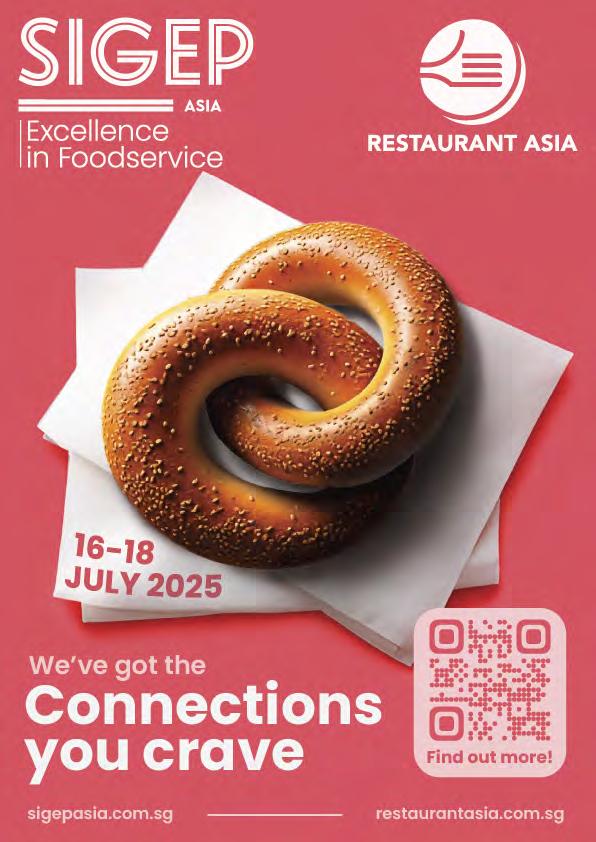
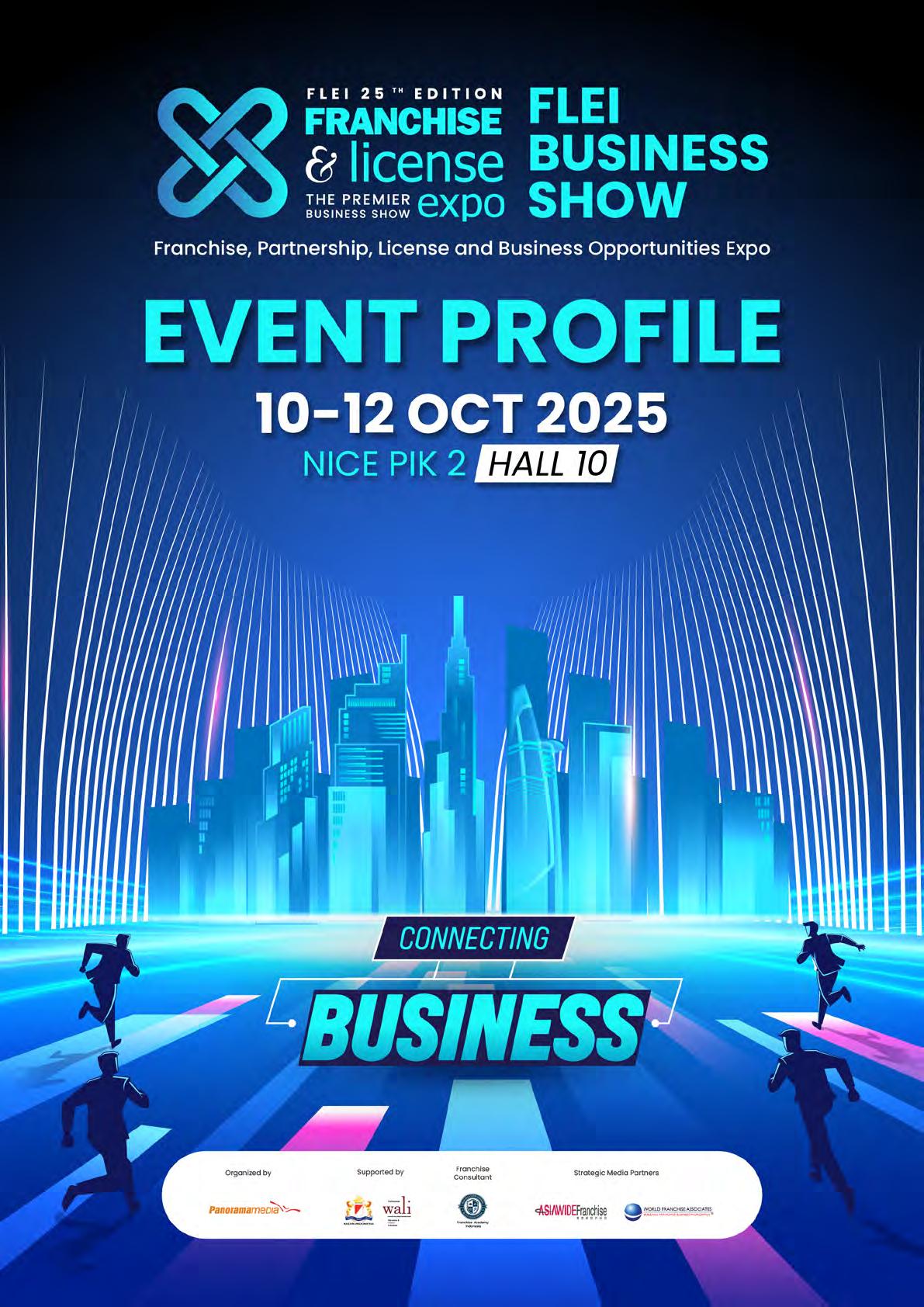

Eric KHOO Head, Business Development IPOS International
ost businesses focus on sales to grow or survive - after all, revenue is often seen as the clearest measure of success. Yet quietly in the background, their intellectual property may be doing something even more powerful: compounding in value. This hidden goldmine could one day outshine everything they sell.
IP is often seen as a shield - a way to protect innovations, designs, or brands. What many overlook is this: when strategically managed, IP can evolve into a powerful profit engine that drives substantial returns on investment.
In this article, we unpack five proven pathways for businesses to turn a profit with their IP: through licensing, assignment, fundraising by using IP as collateral, franchising, and joint ventures.
Licensing: Expand Your Reach Into New Markets
Licensing is one of the most widely adopted methods of IP commercialisation. It allows the IP owner to grant another party or multiple parties the rights to use their IP, while retaining ownership. In return, the owner receives royalty payments or a lump-sum fee. This approach enables companies to generate revenue from their IP without having to invest heavily in manufacturing, distribution or market development. Licensing agreements can be structured as sole, exclusive or non-exclusive, depending on the level of control and access granted.
The licensing approach offers two key advantages. First, its scalability. Unlike physical property, which can typically be utilised by limited parties at any given time, IP such as a patent can be licensed to multiple parties simultaneously. This allows concurrent use across different geographic regions or market segments, creating multiple revenue streams for the patent owner.
Second, it allows companies to focus on their core competencies while tapping into the capabilities of partners who have market or application specific expertise.
However, successful licensing requires more than just opportunity - it demands careful consideration of several factors. A well-structured licensing agreement should clearly define the IP being licensed, exclusivity provisions, scope of use, territorial restrictions, quality control mechanisms, and payment terms. Equally important is setting up monitoring and enforcement mechanisms to ensure the licensee complies with the agreed terms and maintains the value of IP.
Assignment: Cash Out Through a Full IP Transfer Assignment involves the transfer of IP rights from the original owner to another party or multiple parties, in exchange for compensation. Unlike licensing which retains ownership, the IP owner permanently transfers all rights, title, and interest in the IP during the assignment transaction.


Assignments are employed typically in situations when the IP is no longer core to the company’s strategy, or when the company requires cashflow urgently.
Apart from immediate financial returns, there is another advantage to assignment. The IP owner is no longer saddled with the responsibility of maintaining and enforcing the IP rights, which can incur hefty ongoing expenses.
One critical step in any successful IP assignment is ensuring the IP isn’t encumbered by existing licences, agreements, or third-party claims. Just as important is recognising that once IP rights are assigned, the assigning company forfeits the right to use the IP. This is typically the case unless that right is explicitly retained in the agreement. If the IP later proves essential to ongoing or future operations, the business may face costly setbacks, including the need to re-license what it once owned.
Fundraising by Using IP as Collateral: Unlock Capital For Your Next Move
Using IP as collateral for fundraising is a fast-emerging trend in IP commercialisation. This allows companies to leverage their IP to secure loans and financing. Financial institutions and investors have also become increasingly exposed to these alternative investment vehicles, paired with improved methods for valuing and managing IP assets. To enhance transaction efficiency, there is a growing trend toward IP tokenisation, which enables fractional ownership of IP assets and significantly expands the potential investor base.
For businesses considering using IP as a collateral, several factors are crucial for success. Valuing your IP by accredited valuation professionals is essential to establishing a credible collateral value. IP owners also need to maintain a well-documented IP portfolio with clear ownership records and protection status to address lender concerns. Lastly, IP owners must clearly articulate the IP’s market potential and its ability to generate revenue.
Think of franchising as a dialled-up version of licensing with far more structure and support. In a franchise agreement, the IP owner grants a franchisee the right to operate under their established business model, using trademarks, know-how and technology. What sets franchising apart is the broader ecosystem. The franchisor typically provides ongoing training, support, and a comprehensive system for managing the business, all in exchange for upfront fees and recurring royalties.
Before embarking on franchising, businesses should consider a few critical factors. First, developing a standardised and replicable business system is essential - one that delivers consistent results regardless of who’s running it. This requires clear documentation and processes to ensure that the overall brand experience, product quality, and customer service is maintained across all locations. Second, securing comprehensive IP protection is key to building a defensible franchise. Businesses should secure rights across all relevant IP categories (trademarks, copyrights, patents, and trade secrets), especially in target markets where the franchise will operate. Finally, setting clear guidelines on whose responsibility it is to monitor and enforce against IP infringements by third parties is key.
Effectively Joint ventures are a collaborative approach to IP commercialisation involving two or more entities combining their IP assets to work towards common business goals. Companies can leverage complementary IP portfolios, share risks, and tap into new markets or technologies that might be challenging to develop independently.
Three critical elements must be in place for a joint venture to succeed. First, partners must conduct thorough IP due diligence to verify the validity, enforceability, and freedom to operate for all background IP. Second, joint venture agreements should clearly define each party’s background
IP, how foreground IP created will be owned and managed, and what happens to the background and foreground IP if the venture dissolves. Third, IP management decisions should be agreed upon to avoid disagreements on critical issues like enforcement actions or licensing to third parties. Joint ventures can be highly effective for IP commercialisation, but they are not without their challenges. Different company cultures and misaligned objectives can hinder implementation. Therefore, for a successful joint venture, do involve partners with complementary capabilities, clearly defined roles, and have a shared vision for how the combined IP will create market value.
These five commercialisation strategies - licensing, assignment, fundraising by using IP as collateral, franchising, and joint ventures - offer flexible ways for businesses to extract maximum value from their IP.
To monetise successfully, tailor your approach to your company’s specific business objectives. Look closely into your IP portfolio, business capabilities, and growth aspirations to determine which commercialisation pathway - or mix of pathways - will yield optimal results. Back this with rigorous market analysis, proper IP valuation by accredited professionals, and a clear understanding of legal frameworks governing IP in your target markets.
As digital technologies and knowledge-based economies reshape global markets, the value of intangible assets will only keep rising. Companies that act now to develop smart, tailored IP commercialisation strategies will gain a decisive edge. By applying the approaches in this guide, you can turn IP from a passive shield into a powerful engine for growth, value creation, and long-term competitive advantage.

五种知识产权变现途径

多数企业专注于销售以实现增长或维持生存——毕 竟,收入通常被视为衡量成功最直接的标准。然 而,在幕后默默耕耘的背后,他们的知识产权或许 正在发挥着更强大的作用:价值的复利增长。这座隐藏的金矿 终有一天会超越他们所有的产品销售。
知识产权通常被视为一个护盾——一种保护发明创造、外观设 计或品牌的方式。但许多人忽视了这一点:如果进行战略性管 理,知识产权可以发展成为强大的盈利引擎,带来可观的投资 回报。
在本文中,我们将为您剖析五种行之有效的企业利用知识产权 盈利途径:许可、转让、以知识产权作为担保进行融资、特许 经营以及开办合资企业。
许可:拓展新市场
许可是知识产权商业化最广泛采用的方法之一。它允许知识产 权所有者授予另一方或多方使用其知识产权的权利,同时保留 所有权,作为回报,所有者将获得许可权使用费或一笔总费 用。这种方法使公司无需在制造、分销或市场开发方面投入 巨资,即可利用其知识产权创造收益。许可协议可以分为独 家、排他或非独家三种类型,具体取决于授予的控制和使用 权级别。
许可有两大主要优势。首先是可扩展性,与通常只能在特定时 间由有限方使用的实物资产不同,专利等知识产权可以同时授 权给多方。这使得所有者能够在不同的地理区域或细分市场同 时创造多种收入来源。
其次,它使所有人能够专注于自身核心竞争力,同时能够利用 合作伙伴拥有的市场或特定的专长。然而,成功的许可不仅仅 需要机会,还需要仔细考虑多种因素。一份结构合理的许可协 议应该明确界定被许可的知识产权、排他性条款、使用范围、
地域限制、质量控制机制和付款条款。同样重要的是建立监控 和执行机制,以确保被许可方遵守约定条款并维护知识产权的 价值。

转让:知识产权全面转让套现 转让是指将知识产权从原所有者转让给另一方或多方,并收取 相应报酬。与保留所有权的许可不同,知识产权所有者在转让 过程中永久转让知识产权的各种权利、所有权和权益。转让通 常用于知识产权不再是公司战略核心的情况,或是公司急需现 金。除了即时的财务回报外,转让还有另一个优势,之前的知 识产权所有者不再承担维护和执行知识产权的责任或持续巨 额支出。
成功的知识产权转让都有一个关键就是确保知识产权不受现有 许可、其他协议或第三方索赔的约束。同样重要的是要认识 到,一般情况下一旦知识产权被转让,转让方就丧失了使用该 知识产权的权利,除非协议中明确保留了该权利。如果知识产 权后来被证明对当前或未来的运营至关重要,企业可能会面临 代价高昂的损失,包括需要重新授权其曾经拥有的知识产权。
利用知识产权作为担保进行融资:为下一步行动释放资本 利用知识产权作为担保进行融资是知识产权商业化领域一个快 速兴起的趋势,能使企业利用其知识产权获得贷款和融资,随 着知识产权资产的评估和管理方法得到改进,金融机构和投资
者也越来越多地接触这些特殊投资工具。为了提高交易效率, 知识产权代币化趋势日益增长,这使得知识产权资产被多方共 有成为可能,这显著扩大了潜在的投资者群体。
对于考虑将知识产权作为担保进行融资的企业来说,有几个因 素对成功至关重要。首先,估值应由获得认证的估值专业人士 进行,这对于确定可靠的担保价值至关重要。其次,知识产权 所有者还应当保持完备的知识产权包记录,其中包含清晰的所 有权记录和保护状态,以解决贷款方的顾虑。最后,知识产权 所有者必须清晰地阐明知识产权的市场潜力及其创收能力。
特许经营:复制您的成功
特许经营就像是许可的升级版,拥有更完善的结构和更强大的 支持。在特许经营协议中,知识产权所有人授予被特许经营人 在其既定商业模式下使用其商标、技术秘密和技术进行运营 的权利。特许经营的独特之处在于其提供更全面的商业生态系
统,意思是特许经营人通常会提供持续的培训、支持和全面的 业务管理系统,并收取预付费用和定期特许权使用费。
在开展特许经营之前,企业应考虑几个关键因素。首先,开发 一个标准化的且可复制的业务系统至关重要——无论由谁运 营,都能提供一致的结果。这需要清晰的文档和流程,以确保 在所有地点都能保持整体品牌体验、产品质量和客户服务。其 次,获得全面的知识产权保护是打造可防御特许经营的关键。 企业应确保所有相关知识产权(商标、版权、专利和商业秘 密)的权利,尤其是在被特许经营的目标市场。最后,制定明 确且具体的指引,明确谁有责任监控和打击第三方的知识产权 侵权行为,这一点至关重要。
合资企业:携手合作,有效变现 开办合资企业是一种知识产权商业化的合作方式,涉及两个或 多个实体整合知识产权资产,共同致力于实现商业目标。企业 可以利用互补的知识产权组合,共担风险并共同开拓可能难以 独立开发的新市场或新技术。
合资企业的成功必须具备三个关键要素。首先,合作伙伴必须 进行彻底的知识产权尽职调查,以验证所有背景知识产权的有 效性、可执行性和运营自由度。其次,合资协议应明确界定各 方的背景知识产权、已创建的前景知识产权的所有权和管理方 式,以及合资企业解散后背景知识产权和前景知识产权的处置 方式。第三,应就知识产权管理决策达成一致,以避免在关键 问题(例如执法行动或向第三方许可)上产生分歧。
合资企业对于知识产权商业化而言非常有效,但也并非没有挑 战。不同的公司文化和目标不一致可能会阻碍其实施。因此, 要成功开办合资企业,务必让能力互补、职责明确、并对整合 后的知识产权如何创造市场价值拥有共同愿景的合作伙伴参与 其中。
从保护到盈利:让您的知识产权为您服务
这五种商业化策略——许可、转让、以知识产权为担保进行融 资、特许经营和合资企业——为企业提供了灵活的方式来最大 限度地利用其知识产权价值。
要成功实现商业化,需要根据公司的具体业务目标定制您的方 案,仔细研究您的知识产权组合、业务能力和增长愿景,以确 定哪种商业化途径(或多种途径组合)能够产生最佳效果。为 此,您需要进行严格的市场分析,由获得认证的专业人士进行 适当的知识产权估值,并清晰地了解目标市场的知识产权法律 框架。
随着数字技术和知识型经济重塑全球市场,无形资产的价值只 会不断上升。行动迅速、制定明智和量身定制的知识产权商业 化战略的公司将获得决定性的优势。通过应用本指南中的方 法,您可以将知识产权从被动护盾转变为推动增长、价值创造 和长期竞争优势的强大引擎。
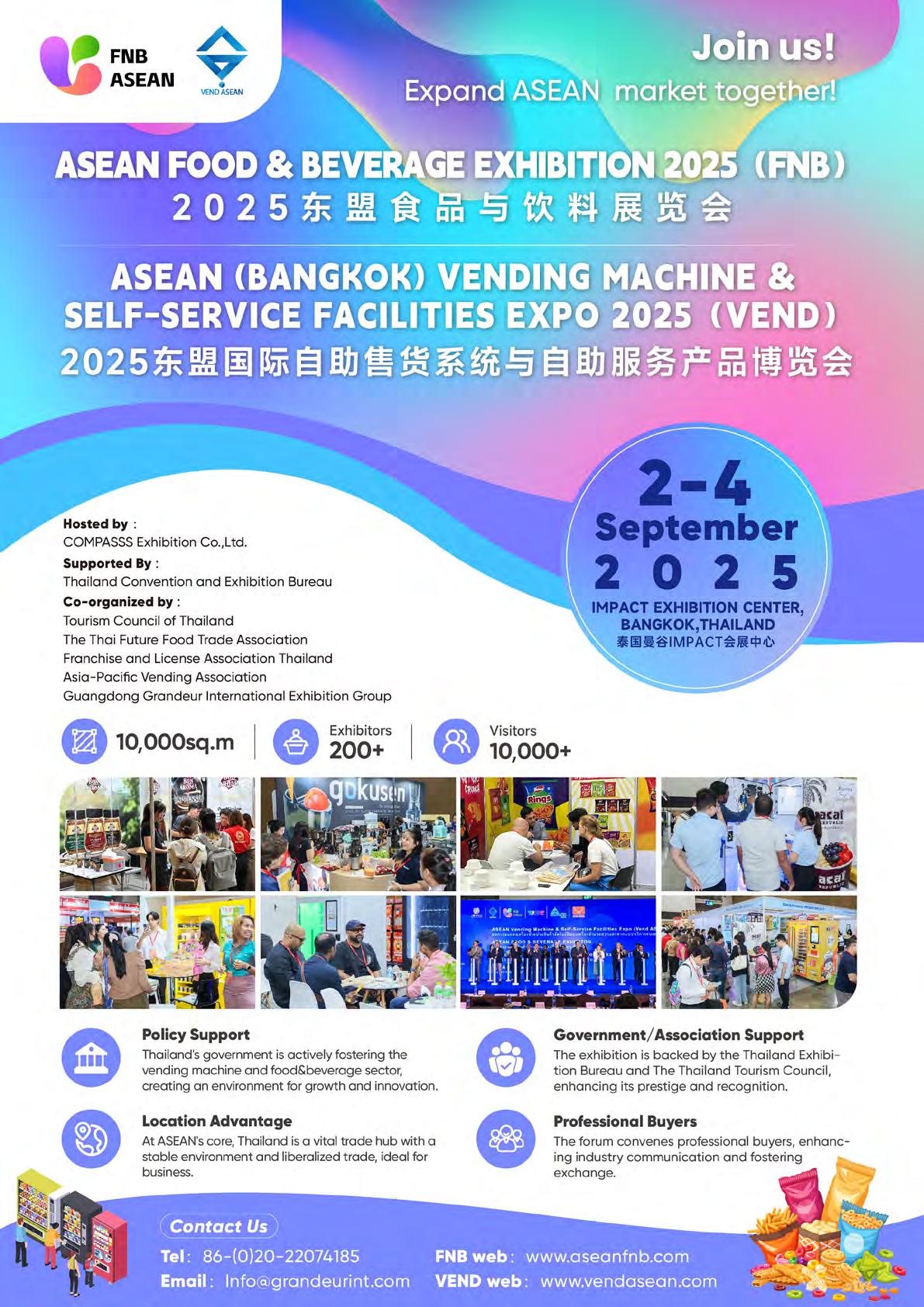
Franchise International Malaysia 2025 (FIM 2025) took place at the KLCC over the period May 8-10.
Organised by the Malaysian Franchise Association (MFA) in collaboration with the Ministry of Entrepreneur and Cooperatives Development, this year’s edition attracted more than 150 franchise players and 30,000 visitors, reinforcing Malaysia’s position as a regional franchise hub.
“Among the highlights are the Asean Franchise Convention (May 7-8), which brought together industry experts to discuss franchise sustainability, digital transformation and profitability. The event also saw the adoption of key franchise-related declarations among participating Asean member countries, further strengthening regional collaboration,” MFA Chairman Datuk Dr. Radzali Hassan told SunBiz.
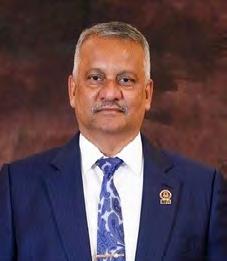
“Malaysia has a wellestablished franchise ecosystem, supported by strong legal frameworks such as the Franchise Act 1998 and globally recognized
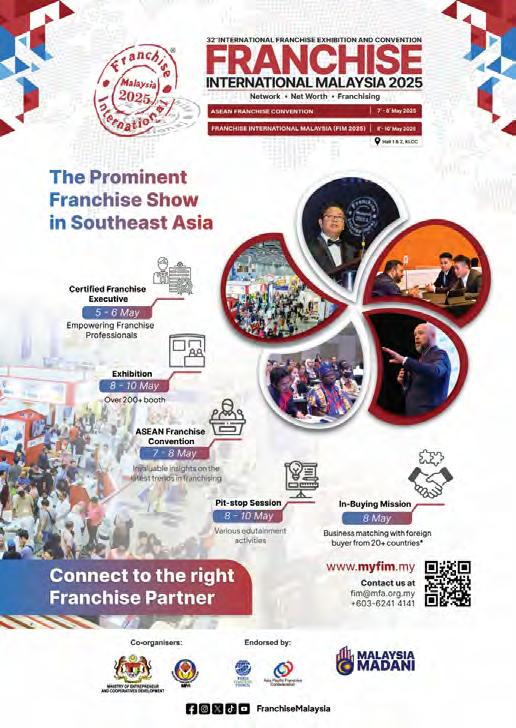
certifications like our halal certification. Through FIM 2025 and our international trade missions, we aim to accelerate the global expansion of Malaysian franchise brands and strengthen cross-border collaborations,” he said. “Several institutions, including Perbadanan Nasional Bhd, SME Bank and Tekun Nasional, are offering financing schemes tailored to franchise businesses.
The Market Development Grant by Matrade further supports international franchise expansion efforts by providing financial assistance for overseas market entry. The National Franchise Policy 2030 would position franchising as a key driver of Malaysia’s economic growth,” Radzali said.
The inaugural ASEAN Franchise Convention (AFC), held on May 7 to 8 at the Kuala Lumpur Convention Centre in conjunction with Franchise International Malaysia 2025 exhibition and conference, convened several franchise leaders, policymakers and innovators from six ASEAN member states—Malaysia, Singapore, Thailand, the Philippines, Indonesia and Vietnam—to chart a collaborative path forward.
Hosted by the Malaysian Franchise Association (MFA) in collaboration with the Ministry of Entrepreneur and Cooperatives Development (KUSKOP), the convention was themed “Shaping the Future of Franchising in ASEAN: Sustainability, Digitalization and Growth.”
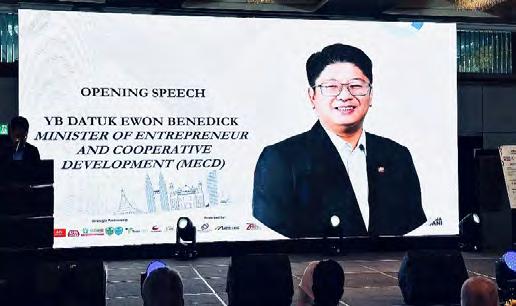
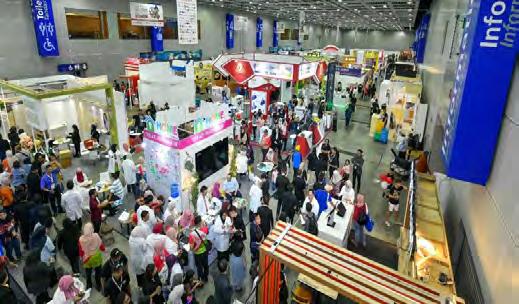
2025年马来西亚国际特许经营大会(FIM 2025)于5月8日至10 日在吉隆坡城中城(KLCC)举行。
本届大会由马来西亚特许经营协会(MFA)与马来西亚企业家 及合作社发展部联合举办,吸引了超过150家特许经营企业和3 万名参观者,巩固了马来西亚作为区域特许经营中心的地位。
MFA主席拿督拉扎利·哈桑博士告诉《SunBiz》:“东盟特许 经营大会(5月7日至8日)是本届大会的亮点之一,大会汇聚 了行业专家,共同探讨特许经营的可持续性、数字化转型和盈 利能力。此次大会还见证了东盟成员国通过的重要特许经营相 关宣言,进一步加强了区域合作。”
他表示:“马来西亚拥有完善的特许经营生态系统,并得到 1998年《特许经营法》等强大法律框架以及我们清真认证等全 球公认认证的支持。通过FIM 2025和我们的国际贸易代表团, 我们旨在加速马来西亚特许经营品牌的全球扩张,并加强跨境 合作。”“包括国家机构、中小企业银行和国家培训中心在内 的多家机构正在为特许经营企业提供量身定制的融资计划。”
“马来西亚外贸促进局 (Matrade) 的市场发展补助金为进 入海外市场提供资金援助,进一步支持了特许经营的国际扩 张。2030 年国家特许经营政策将把特许经营定位为马来西亚 经济增长的关键驱动力。”拉扎利说道。

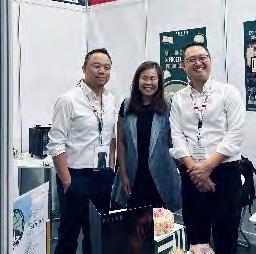

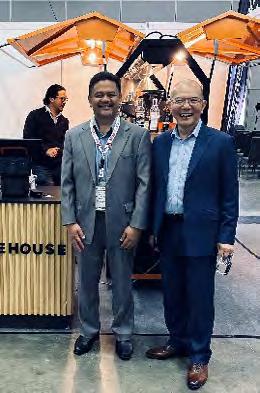
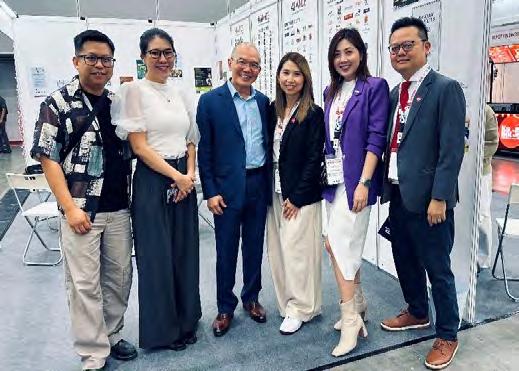
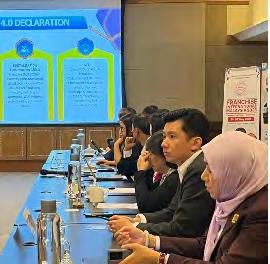
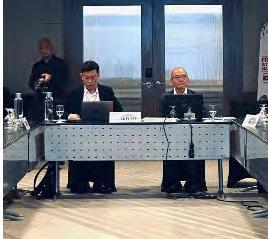



Minister for Culture, Community and Youth, and Second Minister for Law, Mr. Edwin Tong SC, was the guest-of-honour at IP Week @ SG the annual global IP conference held in Singapore’s iconic Sands Expo & Conference Centre.
Examining the economic contribution of IPR-intensive industries, including those within the creative sector, a recent IPOS study found that one in five jobs created in Singapore between 2017 and 2021 were from IPRintensive industries, and employees from IPR-intensive industries were paid 9.2 percent more than industries that did not use IP intensively.
“Singapore is committed to deepening IP awareness and providing greater resources to businesses and individuals, including those in the creative sector, to better protect, manage, and monetize their IP. This is aligned with one of the key objectives of our Singapore IP Strategy 2030 – to build a savvy workforce that is adept at capitalizing IP for growth,” said Minister Tong.
In its thirteenth edition, IP Week @ SG 2024 aims to demonstrate the impact of collaboration by bringing together 90 partners across various sectors, and over 4,500 international delegates, global IP thought leaders, and enterprises to discuss the latest topics on innovation and IP, including valuation, commercialization, emerging technologies and dispute resolution.
The event also recognized enterprises for their exemplary innovation at the annual WIPO-IPOS IP for Innovation Awards. Hailing from the manufacturing, robotics, semiconductor, and infant care sectors, the enterprises were recognized for the outstanding use of IP in their business.
For media queries, please contact: Ms. Cherie Koh, Senior Assistant Director, Media C Communications Tel: +65 6330 2705, Cherie_koh@ipos.gov.sg; Ms. Jenny Kwok Senior Assistant Director, Media C Communications Tel: +65 83337231 Jenny_kwok@ ipos.gov.sg
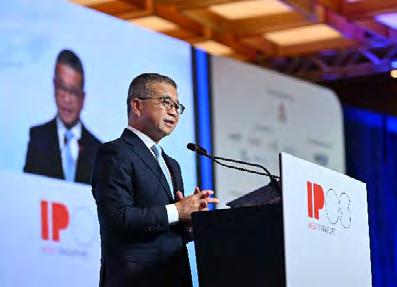
化、社区及青年部长兼律政部第二部长 Edwin Tong SC 先生是新加坡举办的年度全球知识产权会议 IP Week @ SG 的嘉宾。
新加坡知识产权局最近的一项研究考察了知识产权密集型产业 (包括创意产业)的经济贡献,发现新加坡 2017 年至 2021 年期间创造的五分之一就业岗位来自知识产权密集型产业,知 识产权密集型产业员工的薪酬比未密集使用知识产权的产业高 9.2%。
Tong 部长表示: “新加坡致力于深化知识产权意识,为包括 创意产业在内的企业和个人提供更多资源,以更好地保护、管 理和货币化他们的知识产权。这符合我们新加坡知识产权战略 2030 的主要目标之一——打造一支精明的劳动力队伍,善于 利用知识产权促进增长。”
IP Week @ SG 2024 已举办十三届,旨在展示合作的影响, 通过汇集各个行业的 90 个合作伙伴、4,500 多名国际代表、 全球知识产权思想领袖和企业,讨论创新和知识产权的最新主 题,包括估值、商业化、新兴技术和争议解决。此次活动还在 年度 WIPO-IPOS 知识产权创新奖中表彰了企业的模范创新。
这些企业来自制造业、机器人技术、半导体和婴儿护理行业, 因其在业务中对知识产权的出色运用而获得表彰。

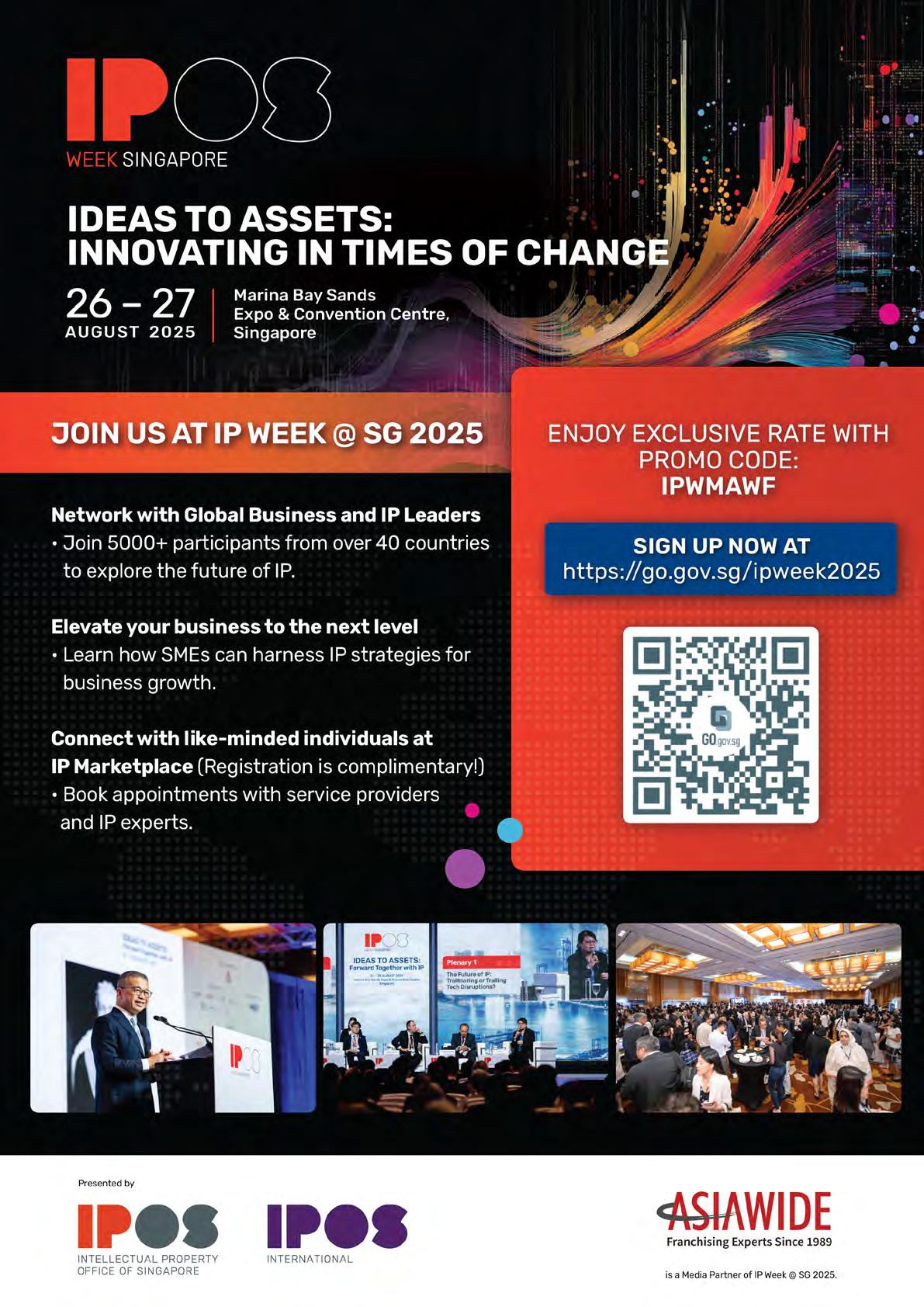


With the development of China’s economy, Chinese enterprises are going overseas more frequently, and many are turning their attention to the Southeast Asian market. This region is full of vitality and has a huge consumer group which provides huge potential. However, due to the increasingly fierce market competition, the importance of intellectual property protection has become very apparent. As the legal presentation of corporate brands, trademarks not only represent the image and reputation of enterprises but are also important assets. With the intensification of overseas competition among Chinese enterprises, overseas trademark disputes have increased, and Southeast Asian countries have become a market that trademark squatters have targeted. This article analyzes the trademark squatting cases in Southeast Asian countries in the hope that Chinese enterprises are enlightened on this subject matter.
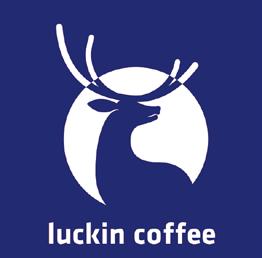
The Luckin Coffee case in Thailand. Luckin Coffee is a household brand in China. However, when you set foot on the land of Thailand, you may encounter a coffee that is very similar to Luckin Coffee. Yes, it is Luckin Coffee’s “stand-in” in Thailand.
January 2021----Some Chinese netizens found a Luckin Coffee store in Thailand. From the decoration, logo design, coffee cups to handbags, they are very similar to the Luckin Coffee design in China, except that the deer in its logo is a mirror image of the deer design of Luckin Coffee in China.
August 2022----Luckin Coffee (China) Co., Ltd. issued a statement: Luckin Coffee has not opened a store in Thailand, and the Luckin Coffee stores in Thailand are counterfeit stores.
However, why was the well-known Chinese Luckin successfully “cloned” in Thailand? The shadow player behind the preemptive registration company of ‘Luckin Coffee’ must be very familiar with Luckin Coffee in China. The preemptive registration company used Thailand’s “first-to-file system” to gain a “time difference” advantage. It has to be said that in cross-border trademark protection cases, you can’t just rely on “reason”. You also need to have the right representation in terms of legal entity. Due to legal and technical reasons, after winning the first judgment, Luckin Coffee in China unfortunately received a verdict of losing the second judgement.
As the leading brand in the Chinese coffee industry, Luckin Coffee will naturally not give up due to the result of the second judgement, so it appealed in March 2024. The Thai court made a favorable judgment for Luckin Coffee on February 6, 2025, that is, it was determined that Luckin Coffee had “prior rights or pre-existing rights” over “luckin coffee” and the said “deer head” (The ruling confirmed the company’s better or superior right over the Luckin Coffee trademark and logo)”.


2. The enlightenment of this case and related matters
Trademark registration should be done as early as possible
As the saying goes, “trademarks go first before the market moves”, a registered trademark is undoubtedly a “pass” for enterprises to enter overseas markets. Once an enterprise has secured its trademark rights, it will be more confident in operating overseas. Do not wait till your brand has a certain degree of popularity, which by then will inevitably increase the difficulty of trademark registration and trademark protection, and the cost and energy consumed are huge.
Prior Rights (prior trademark rights) can be regarded as the most important factor for enterprises in rights protection litigation. They are like a legal shield held tightly in the hand, which will also encourage companies to be more active in protecting their rights.
Precautions before trademark application

Trademark registration should be made as early as possible, but it cannot be applied blindly. There are certain potential risks before and after the trademark is approved for registration. Once the application/ registration is improper, it will face refusal, opposition, cancellation, etc. Here are some precautions for reference:
1). Make a comprehensive investigation before submitting a trademark application to avoid the risk of being rejected due to it being identical/similar to another prior trademark. Enterprises can entrust professional agencies to conduct searches.
2). Pay attention to the distinctiveness of trademark elements. ASEAN has strict requirements for the examination of trademark distinctiveness. Because there are many people of Chinese descent who are familiar with the Chinese language, when applying for Chinese trademarks in this region, examiners often combine their English meanings to examine whether they have distinctive features. For instance, even if a word-for-word translation is performed during the application, the examiner may still use translation software to search on its own and then reject it for lack of distinctiveness.
3). Pay attention to the selection of trademark elements. Take Vietnam as an example. Isolate Chinese trademarks are not granted for registration by trademark examiners in Vietnam. Applications for isolate Chinese trademarks shall be rejected. We propose clients to file trademark applications for composite trademarks incorporating Chinese and other elements.
4). Specify the goods/services. It is better to engage a local lawyer to check before submission. In Indonesia, the goods/services classification follows the Nice Classification system, which categorizes goods/ services of trademark into 45 different classes. This system helps businesses and individuals register their trademarks under specific categories of goods and services. It does not accept non-standard items. The classification standards for products, especially food items, can vary significantly between countries due to differences in regulatory frameworks, labeling requirements, and food safety laws. For example, in the case of konjac-based snack foods:
- Indonesia & Myanmar: These countries might classify konjac-based snacks as non-standard descriptions, meaning the product name or category does not conform to officially recognized food classifications. This could be due to factors like lack of specific regulations, concerns over choking hazards (as seen in some markets where konjac jelly is restricted), or simply different food categorization systems.
- Vietnam: It appears to have a more flexible approach in Vietnam, without strict classification requirements for konjac-based snacks. This suggests that local regulations allow broader definitions for food categories, permitting such products to be marketed without significant restrictions.
This discrepancy shows how international trade and market entry strategies need to adapt to local laws and consumer protection measures. Businesses looking to expand across multiple countries must navigate these regulatory differences carefully, ensuring compliance while maintaining brand consistency.
5). After the trademark is approved for registration, it should be put into use as soon as possible, and the evidence of use should be recorded, not only to prevent the cancellation by a third party, but also to respond to the requirements of the competent authorities. In Philippines, the trademark owner is required to submit evidence of use there within three years from the date of application (regardless of whether the trademark is registered), otherwise the trademark may be invalidated.
Simmon Zhao: active for over two decades in the IP area ; recognized as “Asia Women in Business Law Awards” by Euromoney Legal Media Group; trademark expert of Trademark Talent Pool recognized by CTA; a Trademark Expert recommended by 2023 MOZLEN; member for Madrid Committee of CTA and WIPO; member of International Communication Committee for China Trademark Association and Trademark Expert of 2023 Beijing IP Sponsorship Project; previously Senior Legal Director of Xiaomi Corporation; Legal Counsel and Trademark Counsel of The Coca-Cola Company.
Candy Chi: engaged in trademark-related work for fifteen years and has rich experience in global trademark protection.
Practice Area: Global trademark registration applications, transfers, renewals, license recordals, trademark oppositions, cancellations, reviews, etc. She represented a well-known domestic company in trademark infringement disputes in Thailand, Australia, the UK and other countries/regions; represented a domestic automobile company in a trademark infringement dispute in Germany; represented a Chinese heavy industry enterprise ranked among the Fortune Global 500 in handling trademark layout, trademark rights protection and review cases in multiple overseas countries/regions, and provided the enterprise with global trademark layout plans and strategies.
撰稿人:(1)北京市正理律师事务所 高级合伙人 赵丝幪 (2)北京市正理律师事务所 执业律师 池长秋
跨境商标对出海企业的影响及注意事项 1、引言.
随着中国经济的发展,中国企业出海日益频繁,越来越多 的企业将目光投向了东南亚市场。这片充满活力与潜力的 地区,有着庞大的消费群体,为中国企业的发展提供了广 阔的空间。然而,由于市场竞争的日益激烈,知识产权保 护的重要性愈发凸显。商标作为企业品牌的法律化呈现, 不仅代表着企业的形象和信誉,更是企业在市场竞争中的 重要资产。与此同时,随着中国企业出海竞争的加剧,海 外商标纠纷也越来越多,东南亚国家更是一度成为商标抢 注人关注的市场。本文现从东南亚国家商标抢注案例的浅 析,来帮助中国企业厘清商标对于其在东南亚国家出海业 务的影响及启示,并提出几点注意事项,供企业参考。

一波三折的泰国真假瑞幸 案. 瑞幸咖啡在中国几乎是 家喻户晓的存在,想必绝大 多数消费者均已品尝过它。 然而,当你踏上泰国的土地 时,或许会邂逅一款与瑞幸 神似的咖啡,没错,它就是 瑞幸在泰国的 “替身”。 2021年1月-有网友在泰国 发现瑞幸咖啡门店,从装 修、Logo设计、咖啡杯到
手提袋均与中国瑞幸设计极为近似,只是其Logo中小鹿是中 国瑞幸小鹿的镜像。
2022年8月-瑞幸咖啡(中国)有限公司发布声明:瑞幸咖啡没 有在泰国开店,在泰国的瑞幸门店是仿冒门店。
然而,早已人尽皆知的 中国瑞幸,为何在泰国会 被成功“克隆”?瑞幸咖 啡的抢注公司背后的实 际控制人,应较熟知中国 瑞幸,抢注公司利用泰国 的“在先申请制”原则打 了一个“时间差”。不得 不说,在跨国商标维权案 件中,不能往往仅凭借一 个“理”字,还要看你带 的“身份证”对不对。由 于法律技术原因,中国瑞 幸在一审胜诉之后,遗憾 收到二审败诉的判决。
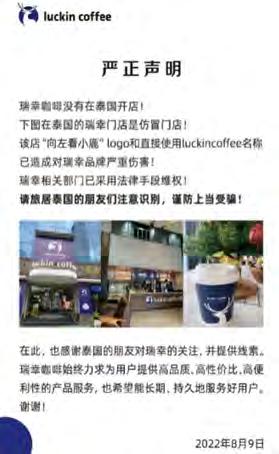
作为中国咖啡界头部品牌 的瑞幸咖啡,对二审结果自然不会善罢甘休,遂于2024年3月 提起上诉,泰国法院于2025年2月6日作出对瑞幸咖啡的有利判 决,即,认定瑞幸对“luckin coffee”及“鹿头”享有“更优权 利”(The ruling confirmed the company’s better right over the Luckin
Coffee trademark and logo)”。至此,瑞幸咖啡在泰国的商标维 权之路上取得重大阶段性胜利 。
2、 本案对我们的启示及相关注意事项
• 商标布局要趁早
正所谓“市场未动,商标先行”,一件注册商标无疑是企 业进入海外市场的“通行证”,企业一旦有了稳定的商标 权利,在海外市场运营中就更加有底气。从此案例不难看 出,商标一定要尽早布局,当你的品牌具备一定知名度时
才想起布局,势必会增加商标注册及商标维权的难度,耗 费的成本和精力均是巨大的。
在先商标权利堪称企业在维权诉讼中的 “王牌筹码”,犹 如紧握在手中的法律盾牌,也会鼓励企业更加积极维权。
• 商标申请前的注意事项
商标布局要尽早,话虽如此,但也不能盲目去申请。商标 获准注册前后都会伴随一定的潜在风险。一旦申请/注册不 当,后续将面临驳回、被异议、被无效等情况。在此梳理 以下几点注意事项,以供参考:
1. 提交商标申请前做全面排 查,以尽量规避因与在先 商标相同/近似而被驳回的 风险。企业可委托专业代 理机构进行检索。
2. 注意商标元素显著性问 题,东南亚对商标显著性 的审查有着严格要求。由 于华人较多,熟悉中文的 群体较为广泛,在东南亚 申请中文商标时,审查员 往往会结合其英文含义 来审查其是否具备显著特 征。比如,在东南亚国家

申请“美味食品”,即便申请时进行逐字翻译,审查员 仍可能利用翻译软件自行检索,进而以其缺乏显著性进 行驳回。
3. 留意商标元素的选择。以越南为例,越南不接受纯中文 商标,提交纯中文商标将会遭遇驳回,企业可将中文与 其他元素组合申请。
4. 指定商品/服务项目,提交前最好请当地律师来把关。以 印尼为例,官方仅接受符合当地尼斯分类的规范项目, 不接受非规范项目。同样一个商品在不同国家的判定标 准不同,比如“以魔芋为主的零食小吃”为例,在印 尼、缅甸均为非规范描述,但越南则没有特别严格的要 求。
5. 商标获准后要尽快投入使用,并保管好使用证据,不 仅防止被第三人提撤销,也为了应对各国家主管局的要 求,以菲律宾为例,官方要求商标自申请之日起三年内 (无论商标是否注册)需要提交在菲律宾的使用证据, 否则商标将会面临被无效的风险。

赵丝幪 Simoon Zhao Sr Partner 北京市正理律师事务所 高级合伙人 邮箱:zhaosim@janlea.com 机构网址:www.janlea.com.cn
赵律师曾被 Euromoney Legal Media Group 评为“亚洲商法杰出女律师”,中华商标协 会商标人才库“正高级”商标人才(首批),入选 2023 年摩知轮推荐涉外商标专 家,现兼任中华商标协会与 WIPO的马德里工作委员会委员,中华商标协会国际交流 委员会委员,2023 北京市知识产权资助金项目评审专家,2023及2024年参加中华商 标协会域外商标法律和实务研究专题研究,2022 年参加首都知识产权服务业协会的 海外知识产权案例撰写工作。
曾任可口可乐大中华区商标负责人、小米集团高级法务总监。深谙企业出海痛点, 熟悉马德里国际商标及海外各国家地区商标体系,支持大量客户制定全球商标战略 体系、全球商标布局项目,成功支持客户解决大量第三方恶意商标抢注案件。

池长秋 Candy Chi Sr Associate 北京市正理律师事务所 执业律师 邮箱:chichangqiu@janlea.co 机构网址:www.janlea.com.cn
池律师从事商标领域十五年,拥有全球商标保护的丰富经验。
业务范围:全球商标注册申请、转让、续展、许可备案、商标异议、撤销、评审等。
曾代理某国内知名餐饮企业在泰国、澳大利亚、英国等国家/地区的商标侵权纠纷 案。
曾代理某国内汽车企业在德国的商标侵权纠纷案。
曾代理位列世界500强的某中国重工企业,处理海外多个国家/地区的商标布局、商 标维权及审评案件,为该企业提供全球商标布局的方案和策略。
30.10 - 01.11.2025 | SECC, 799 NGUYEN VAN LINH, D.7, HCMC
EXHIBITION INFORMATION
TIME 30.10 - 01.11.2025, 3
VENUE SECC, 799 N V L , D. 7, HCMC
SCALE 150 C , 200 B (4,400 2)
ORGANIZER COEX, RETAIL & FRANCHISE ASIA
CO-LOCATED COFFEE EXPO VIETNAM 2025
EXHIBIT ITEMS
RETAILTECH
RETAIL TECH-EQUIP POS/ , RED, , , , ,
RETAIL INTERIOR - EQUIPMENT D , / , , , ,
RETAIL SERVICE N / , , ,
INTERNET RETAILING O , CRM DM
FOOD & BEVERAGE
BEAUTY - HEALTHCARE
CLOTHING - FASHION
RETAIL & WHOLESALE
START-UP CONCEPT
EDU-TRAINING-CONSULTATION
OTHER SPECIALIZED RETAIL
RESULT FROM VIETRF 2024

11 COUNTRIES
240 BRANDS

400 BOOTHS
EXHIBITION PROGRAMS



19,210 VISITORS





Singapore lit up not just with lights but with ideas, innovation, and industry icons as Asia Brand Protection Congress 2025 unfolded in full force. It wasn’t just an event—it was a movement.
From the first handshake to the last standing ovation, every moment was laced with strategy, collaboration, and unexpected sparks of brilliance. The halls buzzed with conversations that bridged sectors, countries, and decades of experience.
Game-changing Insights: From AI governance to fighting counterfeit networks, our agenda featured unfiltered truths and future-ready tactics. Not your typical speaker lineup— this was a who’s who of enforcement agencies, global brands, tech innovators, and civil society leaders.
Moments That Mattered:
(1) “Great to share my thoughts on how civil society needs to promote IP for the public interest in AI governance and brand protection.” – Seth Hays.
(2) “Had a great time at BPC 2025 in Singapore amazing to connect with IP experts across sectors and share insights on protecting brands in the digital space.” – Saen Witthayaphatthanaphorn, Public-Private Partnership Consultant.
(3) “Very interesting choices of topics. It was amazing to see such diverse group coming together to provide their skillset and help each other overcome common challenges.” – Niharika, Head of GRC & Business Resilience at Agoda.
(4) “I found the sessions both engaging and insightful. The event offered excellent opportunities for networking and professional learning.” – Khristian Alvaera, Chief Legal Counsel, Royal Pineda+.
(5) “A great gathering of likeminded brand owners and industry players in this space. Learning was as rich as
the topics covered and networking was meaningful.” –Audrey YAP, Managing Director, Yusarn Audrey LLC.
The networking was unmatched. There was a moment when two enforcement officers from opposite corners of Asia stood in deep discussion with a luxury brand rep and a tech innovator—it was a mini think tank, and it happened over coffee. Attendees walked into sessions. They walked out with blueprints.
Whether it was building AI into IP enforcement or rethinking public-private partnerships, the sessions were short, sharp, and packed with actionable strategy.
With speakers from across industries and continents, the Congress became a melting pot of visionaries and warriors fighting the same fight: protecting ideas, innovation, and identity. “Amazing organization and high level of expertise.” “Very interesting topics. A diverse group helping each other overcome common challenges.”
If You Were There, You Know. If You Weren’t, well… You missed an event where brands found allies, leaders became learners, and the next chapter of brand protection was drafted. We don’t just talk about curbing illicit trade and protecting IP—we build the community to do it… Website: https://worldbigroup.com/Brand-Protection-Conferences
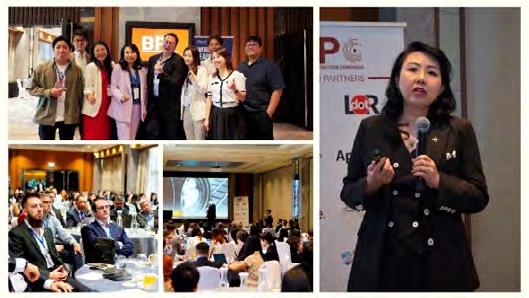
2025 年品牌保护BPC大会:
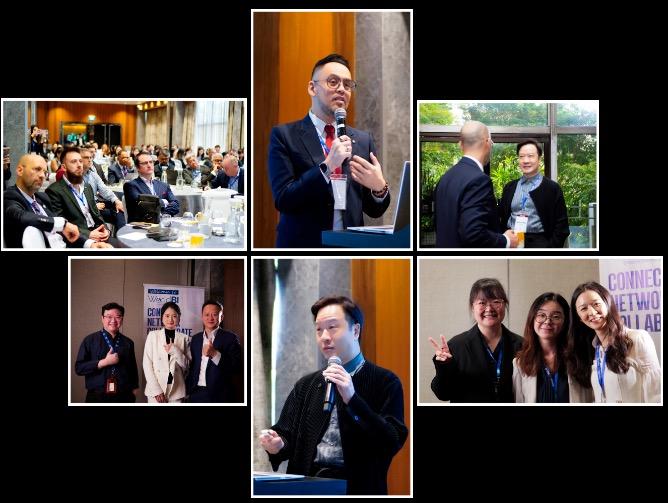
着 2025 年亚洲品牌保护大会的全面展开,新加 坡不仅被灯光点亮,还被理念、创新和行业偶像 照亮。这不仅仅是一个事件,更是一场运动。
从第一次握手到最后一次起立鼓掌,每一刻都充满了策 略、合作和意想不到的光彩火花。大厅里嗡嗡作响,这些 对话在各个行业、国家和数十年的经验之间架起了桥梁。
改变游戏规则的见解:从 AI 治理到打击假冒网络,我们 的议程以未经过滤的事实和面向未来的策略为特色。这不 是典型的演讲者阵容——这是执法机构、全球品牌、技术 创新者和民间社会领袖的名人录。
重要时刻 : (1)“很高兴分享我的想法,即民间社会需 要如何促进知识产权以促进人工智能治理和品牌保护的 公共利益。”(2)“在新加坡举行的 BPC 2025 上度过 了愉快的时光,与各行各业的知识产权专家建立联系, 并分享了关于在数字空间中保护品牌的见解。”–Saen Witthayaphatthanaphorn,公私合作顾问。(3)“非常有 趣的主题选择。看到如此多元化的团队聚集在一起,提供 他们的技能并帮助彼此克服共同的挑战,真是太棒了。“ –Niharika,Agoda的GRC和商业韧性主管。(4)“我发 现这些会议既吸引人又有见地。该活动为交流和专业学
习提供了绝佳的机会。– Royal Pineda+ 首席法律顾问 Khristian Alvaera。(5)“在这个领域,志同道合的品 牌所有者和行业参与者的聚会。学习内容与所涵盖的主题 一样丰富,而建立人际关系网也非常有意义。山黛丽法律 有限责任公司董事经理Audrey Yap.
这活动提供了许多沟通和交流机会。有那么一刻,来自亚 洲两个角落的两名执法人员与一位奢侈品牌代表和一位技 术创新者进行了深入的讨论——这是一个小型智囊团,而 且是在喝咖啡时发生的。显著效果:与会者走进会议, 他们带着蓝图走出去。无论是将 AI 构建到知识产权执法 中,还是重新思考公私合作伙伴关系,这些会议都简短、 尖锐,并且充满了可作的策略。大会的演讲者来自各行各 业和各大洲,成为远见卓识者和勇士的大熔炉,他们为保 护思想、创新和身份而战。评价:“出色的组织和高水平 的专业知识。”“非常有趣的话题。一个多元化的团队, 互相帮助克服共同的挑战。如果你在那儿,你就会知道。 如果你不是,那么......您错过了品牌找到盟友、领导者 成为学习者、品牌保护的新篇章起草的活动。我们不只是 谈论遏制非法贸易和保护知识产权,我们还建立了社群来 做到这一点......网站: https://worldbigroup.com/ Brand-Protection-Conferences
Enterprises Rather than mining data for insights, companies need to think more strategically about the decisions they need to make and use data to help them get there. Wharton’s Stefano Puntoni says that’s the focus of Decision-driven Analytics, his new book co-authored with Bart De Langhe. This episode is part of the “Meet the Authors” series.

Dan Loney: We’re talking with Stefano Puntoni about his book, Decision-driven Analytics. Stefano’s book is about leveraging human intelligence to unlock the power of data. It offers a new approach about making good decisions with data. Stefano, let’s start with explaining your definition of decision-driven analytics.
Stefano Puntoni: The book is motivated by the problems that we see in many companies, where analytics are complex, companies have invested heavily, we have lots of data, and yet companies sometimes seem to struggle to extract value from that data. What we argue in the book is that the gold standard that many companies have set, which is data-driven decision making, may to some extent actually get the point wrong. We argue perhaps it shouldn’t be the decision making that is data-driven. Instead, we argue it should be the data analytics that is decision-driven.
Rather than focusing on the data, and then trying to figure out how do we extract value to improve our decisionmaking, it might be much better, in fact, in many situations to do the opposite. Let’s start from the decisions that we need to make and figure out what data we need to make those decisions.
Loney: What kind of potential impact have we had because maybe the process hasn’t been exactly the way it should be, and we’re maybe not extracting the value that we should?
Puntoni: Nobody argues that using data to make decisions is a bad idea. We need data to make good decisions. What we argue in the book is that the emphasis is wrong. And that the complexity and investments required to get the data systems in place, and all that complex, technical work that has to be done has attracted a lot of attention. At some point, people end up in a situation where we are looking at data and trying to find a purpose for it, rather than looking at the questions that they need to answer and find data for that purpose.
Loney: Are there common mistakes as you’ve investigated this?
Puntoni: The mistakes that we see companies do are a variety of types. But the two that are very common are that companies sometimes end up answering the wrong questions, because they haven’t connected the analytics to the decisions that they need to make very well. Because of that, they explore stuff that is actually not the stuff they should be exploring.
The second is that by focusing so much on the data, you almost end up putting this data on a pedestal and glorifying them to the extent where you might actually become uncritical of them, and not understanding the pitfalls you might run into if you make decisions based on this data. The basic issue is that of a disconnect between decisionmaking and data analytics, where there is large gulf or gap between the people, the leaders who make the decisions, and the systems that are meant to support them.
Loney: It’s important to ask these questions right now, because it feels like we have more data than ever. I would assume the decision-makers are inundated and maybe don’t know how to parse through it and make the right call.
Puntoni: Yeah, it’s like a strange irony in that for a long time companies were complaining they don’t have data to make decisions. They’re still complaining about data, but now they complain they have too much data, meaning there’s so many things that one could look at, and it’s easy to get lost. Of course, we still have many situations where we don’t have good data, and companies still are struggling to figure out ways in which they can achieve evidence-based decision-making in those situations.
I think we need to keep looking for great data. But in many situations, we do have lots and lots of data. The problem is that sometimes those data are not the data you need, or maybe those data are not being thought of the right way in terms of supporting the decisions that are important to make.
Loney: But I guess there is an importance that we need to reinstall the human component of this entire process?
Puntoni: The human judgment is crucial. What I argue always is that as computers and algorithms become smarter and smarter, and the data becomes better and better, we should think harder, not less. In a way, the key message of the book almost is to say that the secret to making good decisions with data is that before you even start looking at the data, you need to do a lot of thinking. So, it takes a lot of thinking without data to make good decisions with data.
Loney: Artificial intelligence is playing a bigger and bigger role in a lot of things that we do. How does AI impact the decision process?
Puntoni: AI is the biggest thing happening today. I’m very excited about all the work that the Wharton School is doing in the area of AI. In fact, our Dean, Erika James announced a major new initiative called the Wharton Initiative for AI and Analytics. We’re really pushing hard on what we know and what we can do to support business decision-making.
AI has both a risk and an enormous upside potential. The risk is that as we use more and more complex algorithms and technology, that gap that I mentioned earlier between decision-making and the analyst is only going to grow even larger. Because now the decision-makers have even a looser grasp of what these techniques can do and what they are about. And the people who are technical become so technical, they now lack a link to the business and maybe domain expertise that can help them be good partners for the leaders who are making decisions. That’s the risk part.
But the upside potential is enormous. I think we are going to benefit in a million different ways from AI to improve our decision-making by automating decisions in a much smarter way, by providing tools that can help support human expert’s decisions, and by making sure that the scarce expertise of our human professionals is used for the cases where that expertise can really move the needle, and leave the rest to AI.
Loney: Is the goal still the same from the company’s perspective? They’re looking for the best outcome they can get, but going about it in a much more advanced way.
Puntoni: For sure. AI is not going to tell you what you want, and what you should want. AI is going to just help you get there. We still need the leadership, we still need human expertise and creativity, imagination to think about what the future might look like.
Loney: Does that take us into the discussion about what AI is going to mean for companies moving forward? There’s a lot of discussion about AI replacing humans. But it seems like more people are coming around to the fact that AI will be complementary to humans.
Puntoni: It will be both. But I think that a lot of the conversations around AI have this tone of human
replacement, and human or AI. Can we develop AI systems that emulate human capabilities? The assumption of doing that is to say, well, once we have the AI system that can do what the human does, maybe we don’t need a human anymore.
I argue that business schools can play an important role to complement that perspective with a different one, which is what kinds of AI systems do we need to complement and augment human experience and human expertise? Instead of thinking about human or AI, can we think about human and AI? For example, I’m teaching a course at Wharton called “AI In Our Lives.” The whole point is exactly to do that and think about what can I do, and how do we benefit from that? What is it that humans do incredibly well, and how do we design an AI system to support that?
Loney: I would imagine that when you look at the decision process, you’re talking about things that can impact top to bottom, up and down the corporate ladder?
Puntoni: Yeah, of course. In different functions, in different levels in the organization. One point that we make in the book is that every decision-maker needs to consider what decisions are mine to make, and not worry about those that are not yours to make. Of course, you can lobby, you can try to influence and bring issues to the table for those who make those decisions. But you should primarily focus on the decision you need to make and then find out how technology and data can help you making those decisions.
Loney: One of the other areas you talk about in the book are the decisions that end up having an impact either in costs or benefits, or the investments that a company may make.
Puntoni: Right, and that stems from the vision of the leadership. What it is that we’re trying to pursue? I think AI is one of those technologies, and analytics more broadly, that enables companies to think in different ways about the benefits they can reap. Some of it might be efficiency. It could be mostly a matter of making things smoother, better, reducing risks, and reducing costs, and managing things that way.
But there is also a different way of thinking of it. Perhaps not just say, how do we do what we do better? But to think bigger and think about what is it that we are not currently doing that we could be doing? And that, I think, is the real potential of data and AI.
Loney: For people who read the book, what do you hope is the message that’s delivered to them?
Puntoni: We end with this message, and I think it is really the key thing. Ultimately, data and analytics attract a lot of our attention. They are sexy, shiny objects, and they are interesting problems. They also can be scary and complicated. So, it’s not surprising that so much attention is dedicated to them. But we should never forget that data and algorithms are a means to an end. What matters in the end are the decisions that we make.
如何利用数据做出更好的决策?提出正确的问题

目标
在这款面向领导者的纳米工具中,《决策驱动分析》(Decision-Driven Analytics) 新书的作者斯蒂芬•庞托尼(Stefano Puntoni)和巴特•德朗贺(Bart De Langhe)解 释了如何在决策中更好地利用您的数据。
“领导者纳米工具”(Nano Tools for Leaders®)是沃顿高管教育学院与沃顿领导 力与变革管理中心的合作项目,它提供了快速有效的工具,让您可以在15分钟内学 习并开始使用,有可能对您的成功、员工参与度和企业生产力产生重大影响。
实”(counterfactual)问题。这些问题涉及假设场景,需要因果 推理,使其本质上比事实性问题更复杂。
了解你真正的需求,收集你真正需要的数据,充分利用你的数据。
纳米工具
大多数企业正确地将数据视为更好决策的来源。但由于领导者经常 犯下一些常见错误,传统的数据驱动方法往往达不到要求。
许多领导者过度依赖现有数据,这些数据可能会也可能不会解决手 头的问题,或者他们将关键决策交给数据分析人士,而这些人并不 真正了解他们试图解决的商业困境究竟是什么?
领导者也倾向于以偏好为导向,得出解决方案,然后找到数据来支 持他们的方案。
而另一个方法是:决策驱动的分析将领导者置于中心,解决了分析 与实际业务决策之间的常见的不匹配问题。
它从需要做出的决定开始,并朝着所需的数据反向追溯。但这也需 要领导人做出更多努力,他们要将重点从获得答案转移到提出正确 的问题上。
这种方法突出了未知领域的战略重要性,强调了对未知的重视以及 谦逊的重要性。事实上,提出正确的问题是数据分析中至关重要的 基础步骤。
行动步骤
1、你究竟要决策什么?
在需要决策时,要专注于你能控制的、与你的组织职位相关的选 项。由于大多数决策者都倾向于熟悉的选择,因此,需要从不同的 视角来拓宽你的选项。
询问值得信赖的同事或召集您的团队以获得进一步的认知。选项集 合应包括既可行又有影响力,并能提高预期的业务成果。它应排除 成本过高或风险过大的选项。
在这关键的第一步中,数据,尤其是现有数据并不需要考虑在内。
如果分析是从目前数据而不是从决策本身开始,就会增加提出错误 问题的可能性。
这并不是说数据挖掘和探索性数据分析在业务中没有作用,但决策 驱动分析这一方法认为,企业高管的首要责任是极度专注于履行他 们的关键职责。
要做到这一点,最好是从当前决策开始,并朝着所需数据反向追 溯。数据挖掘和探索性数据分析是有价值的,但它们有不同的目 的。
2、提出一个“事实性”问题。
当你寻求预测时,问一个“事实”问题。企业经常需要回答这类问 题。
例如,生产设备的平稳运行取决于对机器何时可能开始故障的预 测。然后,这些信息可以用于创建维护计划。
对于零售商来说,理解退货处理的成本同样重要:识别哪些产品更 有退货倾向非常有价值。有了这些认知,公司可以通过调整产品定 价、增加额外措施来减少退货率,甚至砍掉此类产品来积极地制定 战略。
3、提出一个“反事实”的问题。
当你需要比较那些有或没有特定干预的结果时,问一个“反事
例如,在2012年美国总统竞选期间,奥巴马的竞选团队提出“谁 最容易被说服投票给奥巴马?”这个问题并追寻答案。
这个反事实的问题使团队能够确定谁是最倾向于改变投票的摇摆 选民,而不是针对奥巴马或罗姆尼的那些铁杆支持者——对于这 两者的动员都会浪费宝贵的资源。
他们的方法彻底改变了政治竞选的方式,凸显出在动员支持和说 服犹豫不决的选民方面的准确性和效率。
组织使用案例
惠普(HP)有一个服务策略是“Instant Ink”(墨水实时订阅) ,是让客户每月支付费用以接收送到家中的打印机墨水,并可随 时取消订阅。
惠普希望利用数据来主动解决客户流失的问题,并通过折扣等福 利或激励措施进行干预,希望阻止客户取消订单。但因为他们不 能向每个人提供这些激励,他们需要知道该针对谁推出激励。
如果他们问一个事实性问题,“谁最有可能取消?”,然后针对 这些客户,他们会得到一个在很多方面都有用的答案,但对到底 针对哪些客户没有帮助。
这个问题忽略了激励措施可能只对某些客户有效的可能性。惠普 真正需要问的问题是一个反事实的问题:激励措施可能对特定客 户产生什么影响?回答这个问题需要收集和分析新的数据。
最好的方法是随机实验。惠普将一组客户随机分为两组,并只为 其中一组提供激励。然后监测这两组人的流失率。如果存在差 异,可以得出结论认为激励措施可能是有效的,然后再进一步研 究哪些客户做出了回应。
这项随机实验的过程和结果与只关注取消订阅风险最高的客户 的“最佳实践”大相径庭。相反,它揭示了激励措施是否可以减 少取消订单,如果可以,这些激励措施的目标客户是哪种类型。
本款纳米工具的贡献者 斯蒂芬•庞托尼(Stefano Puntoni)博士,沃顿市场营销学教授; 沃顿以人为本技术项目联合主任; 巴特•德朗贺(Bart De Langhe)博士,鲁汶大学和弗勒里克商 学院市场营销学教授;行为经济学和商业数据分析机构(BEDAB) 创始人。
两人为新书《决策驱动分析:利用人类智能解锁数据的力量》 (Decision-Driven Analytics —Leveraging Human Intelligence to Unlock the Power of Data,沃顿商学院出版社, 2024)的 合著者。
知识在行动:相关高管教育课程 战略增长分析:人工智能、智能数据和客户洞察 生成型人工智能与业务转型 人工智能时代的商业模式创新掌握创 新:战略、过程和工具
其他资源:访问所有沃顿高管教育纳米工具 (https://executiveeducation.wharton.upenn.edu/thought-leadership/wharton-at-work/nano-tools/? utm_source=know&utm_medium=display&utm_content=oe&utm_campaign=know_nano)

Whether you came to strike deals, scout trends, build partnerships, or gain market insights — you helped drive the conversations and connections that shaped the future of F&B.
Here’s what we have achieved together:
• 3,231 exhibitors from 57 countries/regions
• 88,349 trade visitors from 143 countries/regions across 5 days
• 2,117 hosted buyers from 47 countries/regions
• 130,000 sqm of business, trends and breakthrough products
• 74 industry experts across 27 sessions at Future Food Experience+
• 30 startups bringing bold new ideas at THAIFEXAnuga Startup
• 452 chefs from 9 countries competed for culinary excellence in 25 categories, at the Thailand Ultimate Chef Challenge
• 60 standout products — 10 winners, 50 finalists presented at the THAIFEX - Anuga tasteInnovation Show
• 4 winners crowned at the Alternative Protein Flavor and Taste Challenge
THAIFEX - Anuga Asia 2026
DATE: 26 - 30 May 2026
VENUE: Hall 1 - 12 | IMPACT Muang Thong Thani, Bangkok, Thailand


论您是来达成交易、探索趋势、建立合作伙伴关系,还 是获取市场洞察,您都为推动塑造餐饮业未来的对话和 联系做出了贡献。
以下是我们共同取得的成就:
• 来自 57 个国家/地区的 3,231 家参展商
• 5 天内,来自 143 个国家/地区的 88,349 名专业观众
• 来自 47 个国家/地区的 2,117 名特邀买家
• 130,000 平方米的商业、趋势和突破性产品
• 74 位行业专家参与了未来食品体验+的 27 场会议
• 30 家初创企业在 THAIFEX - Anuga Startup 上带来大胆 的新想法
• 来自 9 个国家/地区的 452 名厨师在泰国终极厨师挑战 赛中,在 25 个类别中角逐烹 饪卓越奖
• 60 款杰出产品 — 10 个 获胜者,50个入围决赛,在 THAIFEX - Anuga味觉创新展 上展出
• 4个优胜者在替代蛋白质风味 和口感挑战赛中脱颖而出。





Author: Lori Rosenkopf
n her new book, Unstoppable Entrepreneurs, Lori Rosenkopf, vice dean of entrepreneurship at the Wharton School, reveals seven distinct entrepreneurial paths that are open to anyone with the drive to create value through innovation.
Drawing from her 30-year career and interactions with more than 20,000 students, Rosenkopf offers a compelling roadmap for entrepreneurial success.
In the book she tells the stories of a wide range of entrepreneurs. In this excerpt, Rosenkopf discusses the “disruptor path” and offers Amy Errett’s disruption of the hair care industry as inspiration.
Before Amy Errett founded Madison Reed in 2013, the hair color industry consisted of two dominant options: timeconsuming, expensive salon services and more affordable off-the-shelf box dyes. Missing was a middle ground that offered a salon-quality product at a lower price point. That’s where Amy found her market, creating superior hair color for home use sold through an innovative, direct-toconsumer model.
With its convenience, healthier ingredients, and personalized customer experiences, Madison Reed disrupted the industry’s established norms. To get there, Amy relied on substantial funding from venture capitalists to encourage customers to change preferences, behaviors, and expectations. She also uniquely identified five values that drive the company: courage, trust, joy, responsibility, and love. Since its founding as an online, subscription-based service, Madison Reed has expanded to become an omnichannel brand, offering its products through traditional retailers and opening nearly 100 brickand-mortar Hair Color Bars across the United States.
The Path: Disruption. In the context of entrepreneurship, the term disruption was popularized by Clayton Christensen’s theory of disruptive innovation. It refers to the introduction of innovative products, services, or business models by a new or existing company that start at the low end of the market but improve enough to significantly displace higher-end incumbents. These products, services, or business models either fulfill unmet consumer needs or provide solutions that are better than established alternatives. Disruption can lead to not only

the uprooting of established firms but also the creation of new markets and changes in consumer behaviors. Examples of disruptors include Warby Parker founders Neil Blumenthal, Andrew Hunt, David Gilboa, and Jeffrey Raider, who started by selling inexpensive eyeglasses and simplifying the process of buying them with a directto-consumer model. They revolutionized the market by offering designer-quality glasses at prices incumbent retailers have yet to match.
With its convenience, healthier ingredients, and personalized customer experiences, Madison Reed disrupted the industry’s established norms.
In Latin America, Marcos Galperin disrupted the online shopping market by first launching an eBay clone, Mercado Libre, in 1999. It quickly became a more comprehensive e-commerce platform that’s often referred to as the Amazon of Latin America. Chief among its innovations was the introduction of Mercado Pago, a PayPal-like secure payment system that made transactions easy in a region where traditional banks are often undependable or unavailable.
In China, Tao Zhang transformed local business reviews by founding Dianping in 2003. Initially modeled after Yelp, Dianping grew beyond simple reviews to become a robust platform featuring restaurant recommendations, usergenerated reviews, and group buying deals. Over time, Dianping established itself as a pillar of China’s digital economy, ultimately merging with Meituan to form one of the largest on-demand service platforms in the world. A game-changing innovation was its mobile app, which enabled smooth online-to-offline transactions, helping millions of consumers seamlessly connect with businesses across China’s diverse urban landscape.
Three common disruption tactics are:
• Leveraging novel technologies: Utilizing the latest technological advancements to develop innovative business models and value propositions.
• Rapid scaling: Making sure innovations can grow fast enough to both satisfy market needs and overtake competition.
• Building solid ecosystems: Forming alliances of suppliers, other companies, customers, and communities to provide access to resources, mitigate risks, and create barriers for competitors.
Wisdom from Experience. Amy’s advice to current and aspiring entrepreneurs is to understand company culture. “Before we even had product, I sat down with two of our senior leaders and created our company values: ‘We are a hair color company built on values—everything we do is driven by courage, trust, joy, responsibility and love.’ I wanted to spend my time not in a toxic culture but in a culture that I felt passionate about and invested in. I was certain that the only thing that was going to make this company special was not just what we did, but why and how we did it. For Madison Reed, it’s the why of paying our stylists more than they would make in the market. It’s the why of the ingredients, and the why of our company values and the behaviors that people have. What’s acceptable, what’s not, what kind of people you’re hiring? What kind of environment do you have—is it building community or fostering hostility?
“These things are all culture,” she continues. “When people decide Madison Reed isn’t where they should be anymore, we celebrate them instead of villainizing them. I believe that every single person that’s come here is part of our story, and our success comes collectively because of them. We have 10 years of amazing alumni. Two people have started businesses. Part of our culture is wanting our people to have a transformational experience, and if that experience transforms you into wanting to go do something else like I’ve done, I’m all in.”
Excerpted and Adapted from Unstoppable Entrepreneurs: 7 Paths for Unleashing Successful

顿商学院创业副院长洛里·罗森科普夫在其新书 《势不可挡的创业者》中,揭示了七条截然不同 的创业之路,任何有动力通过创新创造价值的人 都可以选择。罗森科普夫凭借其30年的职业生涯以及与2 万多名学生的互动,绘制了一幅引人入胜的创业成功路线 图。
在书中,她讲述了形形色色的创业者的故事。在以下摘录 中,罗森科普夫探讨了“颠覆者之路”,并以艾米·埃雷 特对美发行业的颠覆为例,为其提供了启发。
在艾米·埃雷特于2013年创立麦迪逊·里德染发公司之 前,染发行业主要由两种选择构成:耗时且昂贵的美发沙 龙服务和价格更实惠的现成盒装染发剂。当时缺少一种能 够以较低价格提供美发沙龙级品质产品的中间地带。艾米 正是在这里找到了自己的市场,她创造了优质的家用染发 剂,并通过创新的直销模式销售。
凭借便捷的运营方式、更健康的成分和个性化的客户体 验,麦迪逊·里德 (Madison Reed) 打破了行业既定的常 规。为了实现这一目标,艾米依靠风险投资家的大量资 金,鼓励客户改变偏好、行为和期望。她还独特地确定了 驱动公司发展的五大价值观:勇气、信任、快乐、责任和 爱。麦迪逊·里德 (Madison Reed) 最初是一家提供在线 订阅服务的品牌,如今已扩展为全渠道品牌,通过传统零 售商销售产品,并在全美开设了近 100 家实体染发店。
路径:颠覆.在创业领域,“颠覆”一词因克莱顿·克里斯 坦森 (Clayton Christensen) 的颠覆性创新理论而广为人 知。它指的是新成立或现有公司推出创新产品、服务或商 业模式,这些公司从低端市场起步,但经过改进后足以显 著取代高端现有企业。这些产品、服务或商业模式要么满 足了消费者尚未满足的需求,要么提供了优于现有替代方 案的解决方案。颠覆性创新不仅会导致现有企业的倒闭, 还会催生新市场并改变消费者行为。
颠覆者的例子包括 Warby Parker 的创始人 Neil Blumenthal、Andrew Hunt、David Gilboa 和 Jeffrey Raider,他们最初销售廉价眼镜,并通过直接面向消费者 的模式简化了购买流程。他们以现有零售商尚未匹敌的价 格提供设计师品质的眼镜,彻底改变了市场。
凭借其便利性、更健康的成分和个性 化的客户体验,Madison Reed 颠覆 了行业既定的规范。

在拉丁美洲,马科斯·加尔佩林 (Marcos Galperin)于1999年首 次推出了eBay的克隆版Mercado Libre,从而颠覆了在线购物市 场。Mercado Libre迅速发展成为一 个功能更全面的电商平台,常被称 为“拉丁美洲的亚马逊”。其最主要 的创新之一是引入了Mercado Pago,这是一种类似PayPal 的安全支付系统,在传统银行往往不可靠或无法提供服务 的地区,它使交易变得轻松便捷。
在中国,张涛于2003年创立了大众点评,彻底改变了本地 商家评论的格局。大众点评最初效仿Yelp,逐渐发展成为 一个强大的平台,提供餐厅推荐、用户生成评论和团购优 惠等服务。随着时间的推移,大众点评逐渐成为中国数字 经济的支柱,并最终与美团合并,成为全球最大的按需服 务平台之一。其移动应用程序的一项颠覆性创新实现了顺 畅的线上线下交易,帮助数百万消费者无缝连接中国不同 城市的商家
三种常见的颠覆性策略是:
• 利用新技术:利用最新的技术进步来开发创新的商业 模式和价值主张;
• 快速扩展:确保创新能够快速发展,既能满足市场需 求,又能超越竞争对手;
• 构建稳固的生态系统:与供应商、其他公司、客户和 社区建立联盟,以提供资源渠道、降低风险并为竞争 对手设置障碍。
经验智慧.Amy 对现有和有抱负的企业家的建议是了解公 司文化。“在推出产品之前,我就与两位高层领导坐下 来,共同制定了公司的价值观:‘我们是一家以价值观为 基础的染发公司——我们所做的一切都由勇气、信任、快 乐、责任和爱驱动。’我不想把自己的时间花在有害的文 化中,而是花在一种让我充满激情并投入其中的文化中。 我确信,让这家公司与众不同的唯一因素不仅仅是我们做 了什么,而是我们为什么做以及如何做。对 Madison Reed 来说,这就是‘为什么’。”

这文章摘录并改编自 Lori Rosenkopf 所 著《势不可挡的企业 家:开启成功初创企 业和通过创新创造价 值的 7 条途径》, 版权所有 2025。经 沃顿商学院出版社许 可转载。
Thailand Franchise & Business Opportunities 2025 (21st Edition), Thailand’s largest and most impactful international franchise exhibition attracted >10,515 serious investors from 44 countries during its show held at BITEC over the period 4–7 June.
Organized by Kavin Intertrade Co., Ltd., this edition featured over 50 franchise brands across 12 dynamic business categories, including food, beverage, education, health & beauty, retail, pet care, automation & vending, cafes, real estate, technology, services, and investment. The show is growing steadily each year, with an increasing number of visitors, and nearly 60% of exhibitors have already rebooked for the 22nd edition which will be held July 23–26, 2026 at BITEC.
Official Supporters include Thailand Convention & Exhibition Bureau (TCEB), Office of Small and Medium Enterprises Promotion (OSMEP), Business Development Service (BDS), The Federation of Thai Industries (FTI), aT Korea Agro-Fisheries & Food Trade Corporation, Asiawide Franchise Consultants & other national franchise associations.international businesses and investors about Zagreb’s growing role as a franchise and branding leader.
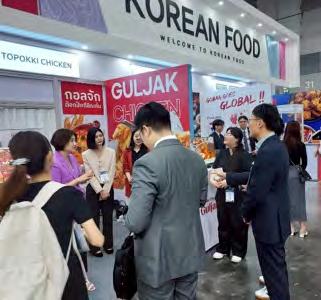

及影响力最大的国际特许经营展会,于6月4日至7日在曼 谷国际贸易展览中心(BITEC)举行,吸引了来自44个国家的 10,515多名有意向的投资者。
本届展会由Kavin Intertrade Co., Ltd.主办,展出了150多 个特许经营品牌,涵盖12个充满活力的商业类别,包括食品、 饮料、教育、健康与美容、零售、宠物护理、自动化与自动售 货、咖啡馆、房地产、科技、服务和投资。
展会规模逐年稳步增长,参观人数也日益增多,近60%的参展 商已重新预订下一届展会,下一届展会将于2026年7月23日至 26日在同一场地举办。
官方支持机构包括泰国会议展览局(TCEB)、中小企业促进办 公室(OSMEP)、商业发展服务局(BDS)、泰国工业联合会 (FTI)、韩国农水产食品贸易公司, 爱思威特许经营顾问公 司以及许多其他国家特许经营协会。


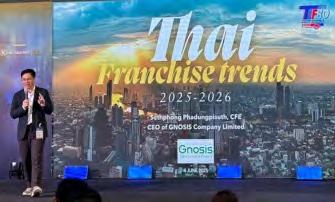

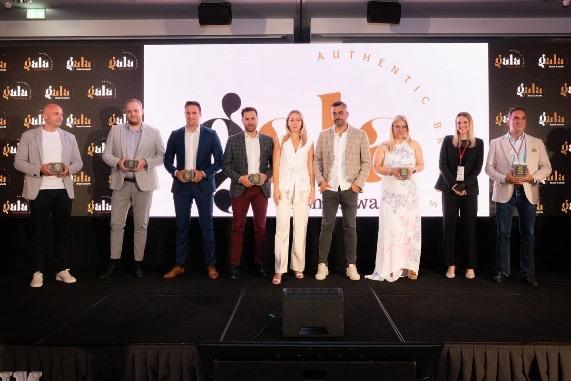

From June 11 to 13, 2025, Zagreb was transformed into a vibrant hub of franchising and brand innovation, celebrating the inaugural World Franchise Day and the prestigious Brand Forum.
Co-organized by Poslovni FM, led by renowned media figure Darko Buković, and the Croatian Franchise Association (a member of the World Franchise Council), the three-day event solidified Zagreb’s emerging status as a strategic center for branding and franchising in Southeast Europe.
World Franchise Day on June 11 set the stage, highlighting Croatia’s significant shift from franchisee of international brands to innovative franchise exporter. Dr. Ljiljana Kukec, President of the Croatian Franchise Association, the local representative of Asiawide Franchise Consultants, emphasized Croatia’s growing potential to develop internationally appealing franchise models like Museum of Illusion, Fish Delish or Carwiz rent a car.
The Franchise Brand Markt, held on June 12 and 13, showcased approximately 25 franchise exhibitors from four countries, spanning diverse industries from education and entertainment to lifestyle and hospitality. Brands such as Maple Bear, Tinker Labs, Carwiz Rent-a-Car, Carry Bowl, Sexy Caw, Body Creator and Museum of Selfies demonstrated the region’s dynamic franchise ecosystem. Concurrently, the Brand Forum held on June 13 attracted over 200 participants, including business leaders, franchise experts, brand strategists, marketers, entrepreneurs, and innovators from across Europe and beyond. The event


featured in-depth panel discussions, interactive workshops, and keynote presentations focused on contemporary challenges and future opportunities. High-profile speakers, including Ömer Sengüler from Galatasaray and Turkish Airlines, Matthias Lehner of the European Franchise Federation, and Rafa Llopis from Spain, delivered critical insights into the evolving landscape of branding, customer engagement, and the significant role of artificial intelligence and digital transformation in shaping competitive business strategies. Attendees particularly valued the practical advice on navigating digital trends and harnessing AI for market growth and brand differentiation.
The event culminated in the prestigious Brand Awards Gala, recognizing outstanding franchise corporate and real estate brands, further elevating Zagreb’s international profile. The gala, held in an elegant setting with a strong international presence, served not only as a celebration of business excellence but also as a platform to promote cross-border collaboration and visibility. Award winners were celebrated for their excellence, innovation, and leadership in their respective sectors, with some of them selected to represent Croatia at the upcoming European Franchise Awards in Brussels. This further positioned the city as a prime destination for international business collaborations, networking, and franchise development.
Ultimately, the event’s success underscored Croatia’s readiness to engage actively and creatively in global franchising markets, sending a powerful message to international businesses and investors about Zagreb’s growing role as a franchise and branding leader.
2025年6月11日至13日,为期三天的萨格勒布的品牌®进化 活动由著名媒体人达科·布科维奇领导的波斯洛夫尼广播 电台(Poslovni
FM)和克罗地亚特许经营协会(世界特许 经营理事会成员)共同主办,巩固了萨格勒布作为东南欧 品牌和特许经营战略中心的新兴地位。
6月11日是世界特许经营日。克罗地亚特许经营协会主席 Ljiljana-Kukec博士(爱思威特许经营当地伙伴)当日强 调,克罗地亚在开发具有国际吸引力的特许经营模式方面 拥有日益增长的潜力,例如幻觉博物馆、Fish Delish餐 厅或Carwiz租车。6月12日至13日举办的特许经营品牌展 (Franchise Brand Markett)吸引了来自四个国家的约25 家特许经营参展商,涵盖教育、娱乐、生活方式和酒店等 多个行业。枫叶熊(Maple Bear)、Tinker Labs、Carwiz Rent-a-Car、Carry Bowl、Sexy Caw、Body Creator和自 拍博物馆(Museum of Selfies)等品牌展示了该地区充 满活力的特许经营生态系统。同期,6月13日举办的品牌论 坛(Brand Forum)吸引了超过200名参会者,其中包括来
自欧洲及其他地区的商业领袖、特许经营专家、品牌战略 师、营销人员、企业家和创新者。此次活动以深入的小组 讨论、互动研讨会和主题演讲为主旨,聚焦当代挑战和未 来机遇。来自加拉塔萨雷足球俱乐部和土耳其航空的Ömer Sengüler、欧洲特许经营联合会的Matthias Lehner和来自 西班牙的Rafa Llopis等知名演讲嘉宾,就品牌建设、客户 互动以及人工智能和数字化转型在塑造竞争性商业战略中 的重要作用等不断变化的格局发表了重要见解。与会者尤 其重视关于如何驾驭数字化趋势、如何利用人工智能实现 市场增长和品牌差异化的实用建议。活动在享有盛誉的品 牌颁奖晚会上达到高潮,表彰了杰出的特许经营企业和房 地产品牌,进一步提升了萨格勒布的国际形象。
最终,此次活动的成功凸显了克罗地亚积极且富有创意地 参与全球特许经营市场的意愿,并向国际企业和投资者传 递了强烈的信号,即萨格勒布作为特许经营和品牌领导者 的地位日益增强。
作者:Ljiljana Kukec

Note: All event dates and formats (physical or virtual) are subject to change.
Jul 16-18
SIGEP Asia & Restaurant & Speciality Asia—Sands Expo, Singapore
Jul 30- Aug 1 Malaysia Intl Food & Beverage (MIFB)KLCC, Malaysia
Aug 8-10 China Franchise Show—Shanghai New Intl Expo Center (SNIEC), China
Aug 21-23 Franchise Expo Malaysia – KLCC, Malaysia
Aug 26-27 IP Week @SG, Singapore
Sep 2-4 FNB ASEAN-- Impact, Thailand
Sep 11-12 Expo Franquicias Argentina--- Buenos Aires City, Argentina
Sep 18-20 FLAsia – Marina Sands Exhibition & Convention Centre, Singapore
Sep 19-22 Taipei Int’l Chain & Franchise Autumn Expo—WTC, Taiwan
Sep 25-27 IFS Autumn. COEX, Seoul, Korea

注意:所有活动日期或形式可能因不同情况而更改
Oct 16 Le Forum Franchise -Centre de Congrès de Lyon (Cité Internationale), France
Oct 19-21 National Franchise Convention, Melbourne, Australia
Oct 30- Nov 1 VIETRF. Hall A1, Saigon Exhibition & Convention Centre, HCMC, Vietnam
Oct 31- Nov 2 IFBO—ICE, Jakarta. World Franchise Council Meeting, Indonesia
Nov 13-14 Arab Franchise Expo, Dubai
Note: The past few quarters’ events include: Taipei Franchise Expo; ThaiFex Horec Asia; Japan Franchise Expo (Tokyo Big Sight); China Franchise Expo (Beijing); Paris Franchise Expo; Food & Hotel Asia; IFS Seoul, Korea; ASEAN Franchise Convention /Franchise International Malaysia; FLEI Indonesia; ThaiFex Anuga; TFBO Thailand; etc…
NOTE: For the latest updates, please visit https://www.asiawidefranchise.com.sg/events


THE FRANCHISE STRATEGIST
Asiawide Franchise Consultants (Asiawide) is Singapore’s pioneer franchise strategist.
Our current CEO, Albert Kong, saw a mismatch between the growth opportunities afforded by franchising and the lack of capabilities to leverage on this great business multiplier way back in 1989.
That was why he bought over his then employer’s company so as to help business owners access excellent franchise strategy consulting.
We know all about franchising because we have first-hand experience (first as a franchisee for Singapore , then as master franchisee – Asia- of a franchise consulting business based in Britain) in running a franchise business.
We continue to be a true-blue franchise strategist that is 100% focused on helping your business make quantum leaps by putting 35+ years of franchising know-how at your disposal.
BORN TO FIGHT UNETHICAL UNDERDELIVERY
All of us have experienced vendors who overpromised and underdelivered, and we are sure you hate that as much as all of us at Asiawide. That is why we made sure we delivered on what we promised, without fail.
THE BRAND BEHIND TOP FRANCHISE BRANDS
This is the vision that Asiawide has been chasing since day one. We want to be the brand that helps transform good businesses into great franchises.
We do this through our 3-pronged mission which is:
• We develop proprietary, workable, versatile franchisingrelated solutions.
• We deliver systematic franchise consulting services in a hands-on way.
• We deploy only knowledgeable and passionate people to serve our clients.


DIFFERENTIATED: Our consultants have real franchising experience. They are certified by various bodies. We do things differently in ethical, smarter, better, faster ways.
EXUBERANT: We bring incredible energy to every project we take on.
SYSTEMATIC: We plan our work carefully and work our plan diligently.
ACCOUNTABLE: We take extreme pride and ownership in all that we do. Our satisfied clients refer clients to us.
SOLID, CREDIBLE TRACK RECORD: We have developed and audited close to 1500 franchises and related packages/ projects in over 10 countries. These clients hail from all sorts of industries: food & beverages, education, wellness/beauty, retail, leisure, services, etc.
5 MARKETING PLATFORMS TO PROMOTE YOUR FRANCHISE:
The best franchising strategy means nothing if you don’t have the means to bring this strategy to the markets you want.
1. We have a carefully-cultivated 60+ countries (and growing) network with strong and dependable partners in each one to shorten your market entry curve so that your franchise can start generating revenue quickly.
2. We participate in close to 30 franchise & related exhibitions and events every year in the Asia region.
3. We publish the world’s only bilingual Asia Franchise & Business Opportunities magazine since March 1994
4. We organize franchising activities like match-making sessions and franchise study missions to different parts of the world
5. Our website and the social media platforms and email blasts – these create a lot of buzz and help our clients gain eyeballs
Talk to us today to explore how we can help you achieve your franchising goals

ASIAWIDE FRANCISE CONSULTANTS PTE LTD
152 Beach Road, Gateway East #25-01, Singapore 189721
Website: www.asiawidefranchise.com.sg

早在1989年,我们的现任首席执行官江进兴(Albert Kong)就 发现特许经营领域存在巨大的增长机会,但企业却缺乏利用这一 潜力的能力。为了填补这一空白,他决定收购当时雇用他的公 司,致力于为企业提供优质的特许经营战略咨询服务。
我们对特许经营了如指掌,因为我们拥有亲身经营特许经营的丰 富经验。起初我们是英国FDS特许经营咨询公司在新加坡的加盟 商,后来成为其区域主加盟商。如今,爱思威特许经营顾问公司 仍然是业界公认的特许经营战略专家,凭借超过35年的专业知 识,致力于帮助您的企业实现飞跃。
我们都经历过承诺过多但交付不足的情况。正因为如此,爱思威 特许经营顾问公司的每一位员工绝不会容忍这样的事情发生。我 们承诺,言出必行,绝不辜负您的期望。
爱思威特许经营顾问公司是许多顶级特许经营品牌背后的推手。 这一愿景自公司成立之初就已确立。我们的目标是帮助优秀企业 转变为卓越的特许经营品牌。我们通过以下三管齐下的使命来实 现这一目标:
1. 开发专有的、可行的、多功能的特许经营解决方案
2. 以亲身实践的方式提供系统的特许经营咨询服务
3. 只部署知识渊博、充满热情的员工来为客户提供服务
差异化: 我们的顾问拥有真正的特许经营经验,并获得了各 种机构的认证。我们以更合乎道德、更聪明、更 好、更快的方式开展工作。
旺盛精力:我们为每个项目带来令人难以置信的正能量。
系统化: 我们认真规划工作,勤奋执行计划。
负责任: 我们对所做的一切负有高度责任感,并引以为豪。
满意的客户会推荐新客户给我们。
良好的业绩: 我们已在 10 多个国家开发和/或审核了近 1500 个特许经营及相关特许经营体系与项目。
这些客户来自各个行 业:食品和饮料、教育、健康/美容、零售、休闲、服务等。
5个营销平台来推广您的品牌:
1)全球策略联盟
:我们拥有60多个国家的策略联盟伙伴网络, 每个国家都拥有强大且可靠的合作伙伴,帮助您迅速进入市 场并开始创收。
2)展览和活动:我们每年在亚洲地区参加近30个特许经营及相 关展览和活动。 这更定会提高我们客户品牌知名度。
3)《亚洲特许经营与投资良机》杂志:自1994年3月起,我们出 版了全球唯一的双语特许经营杂志。这将使我们能够接触到 世界各地的英文和中文客户。
4)特许经营活动:我们组织各种特许经营活动,如前往世界不 同地区的的当地的第三方机构(如银行,商会)一起主办的 配对会议和特许经营考察团。
5)线上平台和社交媒体:我们通过网站、社交媒体平台和电子 邮件群发引起大量关注,帮助客户赢得眼球。
各位老板们, 今天就与我们联系,让我们一起探讨如何帮助您 实现并超越您的拓展事业和国际化目标。





